




Filing deadline extended to June 20; three incumbents, former director Amy Peck, and possibly ROC’s founder will be competing for votes in this summer’s election
By TOM STAUSS Publisher
What seemed like it might be a sleepy Board of Directors election in which only a bare minimum of candidates would file for the three seats to be filled has emerged into something more competitive. There were only two announced candidates prior to the original May 12 filing deadline, incumbents Stuart Lakernick and Monica Rakowski, with incumbent
Steve Jacobs likely but not yet confirmed. He made it official prior to the deadline.
A fourth candidate, former appointed director Amy Peck who narrowly lost a campaign for the Board in 2023 and who ran last year finishing third behind second place finisher Jeff Heavner by 596 votes, filed by the deadline but did not immediately announce her candidacy.
An article published in mid-May

Candidates respond to Progress questions ~ Pages 35-39
To Page 3
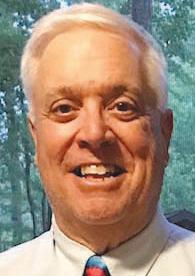


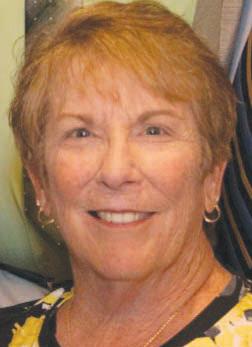



April finances show another $1 million year for the OPA
The Ocean Pines Association recorded a positive operating fund variance of $70,630 in April, the final month of the 2024-25 fiscal year, boosting its year-to-date performance to $1.006 million, producing yet another $1 million year for the OPA if the numbers hold up during the annual audit.
~ Page 34
Board OKs firehouse referendum for ‘up to’ $3.4 million
The Board of Directors unanimously approved a motion on May 24 to move forward with a referendum that if it passes would authorize the Ocean Pines Association’s portion of funding for a long-anticipated replacement for the South Side fire station.
The Board’s approval of a referendum that would limit the OPA’s contribution to $3.4 million sets in motion a series of next steps that will culminate in a community-wide vote to be conducted in conjunction with this summer’s Board election.
~ Page 5





From Page 1
on Ocean Pines Residents Oversight Community (ROC)’s online publication was the first indication that Peck, a frequent critic of the Board since her loss in 2023, would be a candidate for the third consecutive year. She had served as an appointed director during s brief tenure on the Board during the 2022-23 Board term, Her 2023 bid fell short by only a handful of votes.
Rose Ann Conti, a relative newcomer to Ocean Pines, also filed candidate paperwork, but she subsequently withdrew from the race.
ROC’s Clifford may be a fifth candidate, she told the Progress in late May. She had not filed by the deadline for this month’s edition, but she has until June 20 to make up her mind whether to run. The filing deadline was extended when it appeared that, as of the May 12 filing deadline, fewer than the desired number of candidates -- two more than the number of a vacancies to be filled -- had actually submitted the required paperwork with the Ocean Pines Association as candidates,
The slate as it’s shaping up could be a defacto face-off between two competing factions within the community, as it was last summer as
well.
One faction that is known to be very supportive of the current Board of Directors is represented by the Get Involved Facebook page, whose administrator is Esther Diller. She’s married to Lakernick, the current OPA president who is seeking a second three-year term.
Diller has announced that she is supporting the three incumbents running for reelection, Lakernick, Rakowski and Jacobs.
The second faction is represented by ROC, whose administrator, Clifford, is a frequent critic of Board decision-making processes if not the substance of Board policy.
Her recently published critique of the Board’s involvement in hiring a vendor to manage this year’s election prompted an unusual rebuttal on the oceanpinesforum.com Website by OPA General Counsel Bruce Bright, who contended that Clifford’s commentary unfairly characterized the Board majority as a clique that doesn’t listen to property owners and advisory committees before making decisions.
With Clifford a possible candidate for the Board this summer, it’s unlikely that Bright will be posting any more commentaries responding

We are your local DelMarVa Hunter Douglas dealer and motorization experts. We bring the showroom to you, with measuring, samples, and a detailed written quote in the comfort of your own home. Let us help you find the perfect solution to fit your style and budget! Give us a call to schedule your FREE in home design consultation.




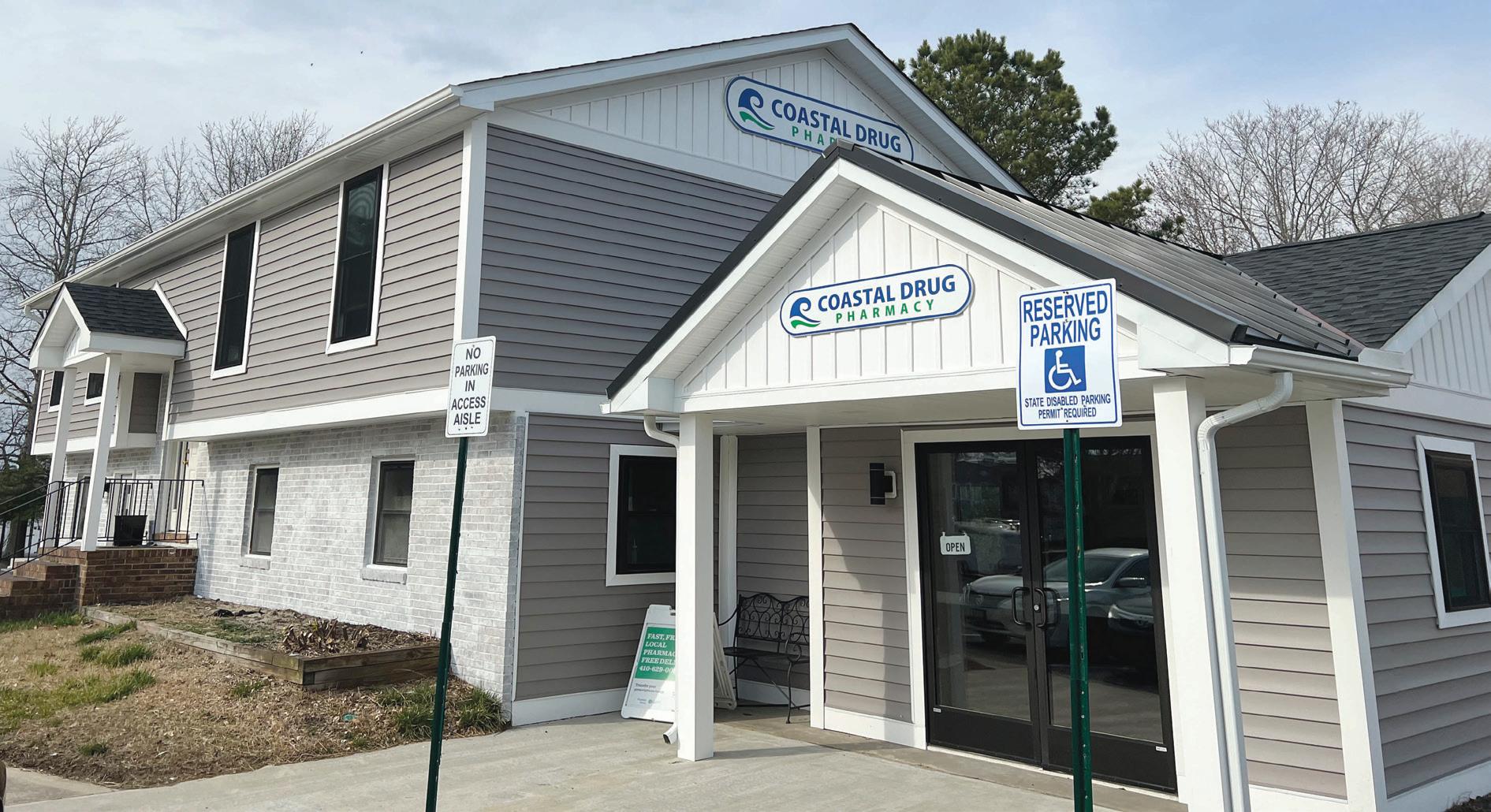






Viola suggests OPA share of cost could come out of replacement reserves
By ROTA L. KNOTT
Contributing Writer
Tmeet the needs of the Ocean Pines Volunteer Fire Department and the broader community for decades to come.
General Manager John Viola presented the proposed motion for consideration during his monthly report to the Board. Viola and the OPA team have worked closely with the OPVFD as part of a work group to bring the fire station project to this critical stage.
he Board of Directors unanimously approved a motion on May 24 to move forward with a referendum that if it passes would authorize the Ocean Pines Association’s portion of funding for a long-anticipated replacement of the South Side fire station.
in a community-wide referendum as part of this summer’s annual Board election.
The approval of a referedum that would limit the OPA’s contribution to $3.4 million sets in motion a series of next steps that will culminate
If approved, the project will replace the aging and outdated firehouse with a modern, safer, and more functional facility designed to
The unanimous vote by the Board authorizes all necessary steps required under the OPA Bylaws to advance the project to a referendum, including the scheduling of a public hearing. Under OPA by-laws, any

From Page 5
capital expenditure exceeding a $1 million threshold must receive approval through a vote of the members in the referendum.
Viola said the latest estimate for the OPA’s contribution toward the new firehouse is “up to” $3.4 million, including a ten percent contingency and some new equipment to outfit the new facility. Previous estimates were $2.9 million and $2.5 million, without a contingency or new equipment included.
Viola noted that the proposal to replace the firehouse has been carefully reevaluated and refined over the past year and a half. The original proposal for a 19,100-squarefoot facility has since been scaled back to 14,610 square feet. He emphasized that this reduction was the result of a focused and collaborative effort to balance fiscal responsibility with operational needs. Despite the size reduction, the design continues to incorporate all necessary safety measures and adheres to National Fire Protection Association standards.
This has been a very profession-
al, very constructive process with the fire department and OPA work group, Viola told the Board. He said they have taken the time to finetune the interior layout, plan for transitioning from the old station to the new one, and create sketches that the architect will use to develop final plans.
Viola had hoped to present completed architectural drawings during the May 24 meeting but noted that a health emergency involving the architect delayed their submission. He expects the plans to arrive in the coming week, adding that the project is only slightly behind schedule. “This is all part of the process,” Viola said. He said the project is a couple of weeks late, but everything is still coming together.
The decision to bring the project to a vote comes after years of assessment and planning. The current South Side fire station was built in 1981 and has far exceeded its intended lifespan. A detailed existing conditions assessment conducted in 2020 by Manns Woodward Studios highlighted numerous deficiencies in the facility, including structural deterioration, inadequate capacity for modern emergency response
needs, serious safety issues, and outdated infrastructure.
That 2020 report concluded that replacement, not renovation, was the only viable long-term solution to ensure that the OPVFD could continue to serve the Ocean Pines community effectively. Since then, the Association and the fire department have worked together to conceptualize a replacement facility that is both cost-effective and capable of meeting current and future service demands.
If approved, the new firehouse will be constructed on the same site as the existing station. Viola noted that the team has considered the logistical challenges of transitioning operations during the construction phase and incorporated those factors into the planning process. The estimated construction timeline is 65 weeks, and groundbreaking is currently projected for October 2025.
Funding for the OPA’s share of the project, currently estimated at $3.4 million with a 10 percent contingency for unexpected expenses, remains a central topic of discussion. Viola told the Board he is recommending that the Association
fund its portion through its general reserve fund, formally known as the replacement reserve.
He explained that the OPA is currently maintaining reserve balances in line with the 2021 DMA Lite reserves study, which recommends reserve funding levels between 22 and 24 percent. This study was conducted by an independent consultant and is scheduled to be updated in August or September of this year.
“We are managing our reserve balance in accordance with that study,” Viola said. Since funding for the building won’t actually begin until after October of 2025, and the updated reserve study will be completed before that, the OPA will have time to evaluate and decide on the funding method based on the most current data, Viola said.
He added that using the replacement reserve is not the only option on the table. Other possibilities include implementing a property assessment increase or borrowing the necessary funds. However, Viola said current financial conditions favor the use of reserves.
Another possible funding source is what Viola calls retained earn-

ings, which are funds accumulated in recent years from positive variances to budget of a $1 million per year or more. Some of that has been used to lower assessments or prevent them from rising dramatically.
According to the April 30 OPA balance sheet published as part of the monthly financials, the current balance of retained earnings or unappropriated equity as its called on the balance sheet is $2.994 million.
Viola said the OPA has positioned itself over the last few years to be in a “Goldilocks” situation with not too much, not too little, but just the right amount in reserves. He said the Association is in a good place with its reserves, and has demonstrated that even though the assessments have come down, it is been able to fund more projects.
Board member Steve Jacobs expressed confidence in the team’s recommendation. He did, however, raise questions about whether using reserve funds would involve any repayment mechanism, particularly given the potential for lost interest income.
Viola responded that such a decision would depend on the results of the upcoming DMA reserve study. If the study shows that the reserves remain adequately funded after the fire station expenditure, then repayment may not be necessary.
If, on the other hand, the reserves are deemed to be underfunded, then the Board may need to consider offsetting the impact through other means, such as an increase in assessments.
Jacobs also asked about the 10 percent contingency included in the cost estimate.
Viola emphasized that this buffer is a standard part of any responsible
From Page 3 to Clifford.
Last year, Peck and Clifford running as team garnered 1,270 and 936 votes respectively, out of 2,447 cast.
Their vote totals were eclipsed by the two winners, Rick Farr with 1,933 votes and Heavner with 1,866. Both were incumbents seeking their second three-year term as directors. The three incumbents running this year are hoping that will another year in which OPA members reward incumbents for a Board term in which the directors seemed to work cohesively and the association thrived financially.
budgeting process and is intended to ensure that the association is not caught unprepared by unforeseen issues or price increases.
Viola wexplained how the fire station funding might affect property assessments if other funding mechanisms become necessary. If the association were to carve out the fire department funding across
a ten-year period, it would equate to approximately $50 per year per household on the assessment. An additional $10 could be attributed to depreciation costs. These figures, he said, illustrate the manageable impact such a project would have on the average assessment.
The referendum will be mailed to Ocean Pines members with ballots
for the 2025 Board election. A public hearing will be held in advance of the vote, giving residents an opportunity to ask questions, express concerns, and learn more about the project’s purpose and scope.
Viola confirmed that a draft version of the referendum question will be made available prior to the hearing.



Contract includes termination clause that would allow Board to bid out the work in 2026
By TOM STAUSS Publisher
After ACE Printing and Mailing of Berlin on April 28 withdrew its bid to provide election services for the Ocean Pines Association’s 2025 Board of Directors election, citing concerns about fairness, procedural irregularities, and breaches of confidentiality throughout the selection process, it was a relatively easy decision to grant the contract to MK Election Services of Pittsburgh, Pa.
The two companies were the finalists in the bid process. The Board at a special meeting in early May voted to award the work to MK, subject to a contract being finalized. That happened later in May, with

OPA Vice President Rick Farr and Director John Latham, liaison to the OPA’s election, signing the document, along with MK’s Pittsburgh operations manager Kenneth Masden.
The contract provides that MK will manage this year’s Board election and those scheduled for 2026 and 2027, but Latham told the Progress in late May that there is a way for the OPA to go to bid next year if it so chooses. He didn’t say how it was possible, and there is no language in the contract that makes that possibility explicit.
The termination provision in the contract appears to be the mechanism that could make it happen. Without stating a cause, either par-
ty has the right to terminate the existing contract 60 days prior to election activities involving the vendor taking place.
If the Elections Committee or the Board decide it’s in the OPA’s best interest to seek bidders, it would simply notify MK of that, terminate the contract, and invite bidders including MK to submit proposals. MK in its proposal responding to the OPA’s earlier RFP (request for proposals) had included a multi-year contract.
It could have been an obstacle to completing a contract with MK, but it wasn’t, having been finessed in the final contract with the termination clause. Even so, the contract presumably gives MK an advantage in securing years 2026 and 2027 as the
OPA’s elections manager, especially if this year’s process of printing and mailing ballots, of managing a hybrid system of paper ballots and online voting, of counting and merging the two results, adjudicating questionable paper ballots and conducting the count in a way that’s visible to OPA members is conducted with minimal or no controversy.
Problems in printing and mailing the ballots to property owners last year delayed their arrival in member mailboxes and the eventual vote count for two weeks. MK subcontracts out the printing and mailing of ballots but has in-house capability to count both paper and on-line ballots.
Other than a premature disclosure of election results by Masden on the day of the vote count by several hours, there were no other reported issues with last year’s process.
The contract signing concludes what was a contentious procurement process for this year’s vendor, with ACE Printings’ CEO Thom Gullyas raising questions about the
To Page 12






Election contract
From Page 10
integrity of the Board’s and Election Committee’s handling of the vendor selection process. In a public rebuttal, OPA General Counsel Bruce Bright said all of the OPA’s efforts in securing a contract were appropriate, as the OPA is an HOA not governed by rules that county and municipal government ordinarily must follow.
ACE Printing, a Berlin-based business with nearly 30 years of experience supporting Ocean Pines elections, initially submitted a compliant proposal in response to the association’s request for proposals issued on March 1.
According to his April 28 letter addressed to the Board and Elections Committee by Gulyas, the company participated in “full transparency, professionalism, and respect for the procurement process.”
However, Gulyas alleged that the Board, during its April 26 monthly meeting, materially altered the requirements after the RFP deadline, undermining the fairness of the bidding process.
Among the issues Gulyas identified are new demands such as providing client references for homeowners association elections, which was not required in the original RFP, and unrequested demonstrations of a functioning online voting portal before contract award.
He also cited questions about the ownership of ballot scanning equipment, despite no such stipulation in the RFP, and public airing of ACE’s business practices by Steve Ransdell, the Elections Committee chairman, during a live Board meeting. Gulyas was also irked that proposal details were published in the Progress before any vendor had been officially selected, which he said breached the RFP’s confidentiality protections.
Bright said that none of that was actually true. He said the Board, after an RFP is issued and proposals received, is entitled to if not obligated to fully vet proposals in any way that it sees fit. He also said there was nothing in the RFP that precluded the OPA from releasing bid proposal information, although it should be noted in the case of the case of the Progress’ reporting on

the dollar amounts associated with each bid, it was not done with the expressed knowledge or approval of anyone within the OPA.
Latham told the Progress that Gulyas had simply cooperated with the Board’s request for additional information, he had a better than 50-50 chance of being awarded the contract. Latham’s motion to grant the contract to ACE failed at the April 26 Board meeting in a 3-3 tie, with Director and OPA Treasurer Monica Rakowski abstaining.
By reacting as he did, the Board defaulted to the other finalist, MK Elections, with contract negotiations progressing with no issues.
ACE Printing is not a newcomer to Ocean Pines. For decades, the company handled paper ballot services for the annual Board election, as well as referendums. When a different vendor faltered during the 2024 election by failing to deliver election materials to residents on time, the association turned to ACE to print materials. Within just 18 hours, ACE printed, mailed, and delivered notification postcards to the entire membership.
“This performance, under pres-
sure and without prior notice, demonstrates ACE Printing’s unwavering reliability, speed, and commitment to Ocean Pines,” Gulyas said.
Despite this record, during the April 26 meeting, some Board members questioned ACE’s readiness to handle a hybrid election combining online and paper voting. During the meeting, Director Rick Farr expressed concern that ACE had not demonstrated a fully developed online voting portal or provided homeowners association references when asked.
“Not being able to share references is a concern for me,” Farr said. “It’s a red flag.”
ACE countered that such requests were inappropriate post-deadline additions and, given the Association’s leak of confidential information, exposing their clients to potential risk was unacceptable. “…the far more serious ‘red flag’ remains the Board’s failure to maintain the confidentiality of vendor submissions, directly violating the RFP terms and exposing bidders’ proprietary information to the public,”















By ROTA L. KNOTT
Contributing Writer
Ocean Pines Police Chief Tim
Robinson gave a comprehensive update on traffic safety and infrastructure initiatives during the Ocean Pines Association’s Board of Directors meeting held on May 24. His presentation provided a detailed look at accident data in the community, updates on safety improvements, and a preview of potential plans to address the area’s ongoing cellular service issues.
Robinson reviewed the number of reportable traffic accidents in Ocean Pines dating back to 2022. According

to the Ocean Pines Police Department’s records, there were 38 reportable accidents in 2022. In 2023, that number decreased to 23, one of which resulted in a fatality. The following year, 2024, saw a slight increase to 24 reportable accidents, again including one fatal crash. As of the meeting in May 2025, there had been 11 reportable accidents so far this year and no fatalities. Reportable accidents are defined as those involving either personal injury, significant property damage, or death.
Robinson emphasized the relatively low number of incidents when


compared to the sheer volume of vehicle traffic moving through the community. He shared recent traffic data collected through radar counters strategically placed at two high-traffic locations on Ocean Parkway. These devices record the number of vehicles, display speeds, and calculate average travel speed. Robinson described the volume of traffic as “mind-boggling.”
To illustrate his point, Robinson referenced two recent traffic studies. Between September 23 and October 5, 2024, approximately 28,006 vehicles traveled through the 100 block of Ocean Parkway, averaging
From Page 12
Gulyas said.
Another point of contention was cost. ACE Printing & Mailing submitted a bid of $18,685, substantially lower than the bid submitted by MK Elections of Pittsburgh, the vendor chosen by the Board in a special meeting May 2 to handle the election now that ACE has withdrawn.
MK’s bid of $31,539 represents a $13,000 difference in election expenses for OPA homeowners.
Elections Committee members were divided on which vendor to

about 2,300 vehicles per day. A subsequent study conducted this year from March 28 to April 15, 2025, found that 30,282 vehicles traveled on Ocean Parkway at Camelot Circle, which breaks down to an average of 1,600 cars per day. Robinson noted that while not all reported accidents occurred on Ocean Parkway, the high traffic volume along that corridor demonstrates how relatively infrequent serious incidents are. In response to safety concerns, a number of enhancements have already been made or are in progress. The OPPD has had new signage installed along walking paths and at key crosswalks, including a new marked crossing at Ocean Parkway and Cathell Road. The department also partnered with the Worcester County Bike and Pedestrian Coalition to apply for a grant aimed at improving pedestrian and cyclist
To Page 16
recommend for 2025, with three in favor of ACE and 2 for MK Elections, Ransdell said. The majority voted in favor of ACE based on its history with Ocean Pines, even though MK Elections was praised for a smooth hybrid voting experience in 2024. Ransdell acknowledged that he voted for MK Elections.
The vote did not occur in a public committee meeting after discussion. It was actually a telephone poll conducted by Ransdell, with each member contacted separately, the Progress has learned.
Though cost is not the sole factor in public procurements, several Board members expressed concerns about justifying such a steep differential, particularly given ACE’s flawless past performance.
Latham noted during the April 26 meeting that when additional referendum mailing costs were factored in, the gap would narrow but MK would still be significantly more expensive.
“We’re not necessarily looking for the lowest cost provider,” Latham said, suggesting that fiduciary responsibility requires the Board to weigh the cost of competing proposals.
Some Board members, even those who voted for ACE when a motion to accept the ACE proposal was put forward by Latham, were concerned by what they considered to be the lack of answers to questions about ACE’s hybrid voting capabilities. Those questions were never answered





Chief Robinson
From Page 14
safety in the Ocean Pines area. Repairs are currently underway to address the most deteriorated sections of shoulders along Ocean Parkway, and new signage has been added to alert motorists to curves along both the north and south sections of the roadway.
Robinson also discussed additional improvements under consideration. These include the installation
of new crosswalks at White Horse Park, at Cathell Road near the Ocean Pines Library location, and at the Manklin Creek Center on Ocean Parkway. The department is also planning targeted speed enforcement initiatives and working with community groups to raise awareness among cyclists about safety requirements, such as the legal obligation to use a light when biking at night. Robinson noted that the department does occasionally enforce the lighting requirement, adding,
“You are required to have a light on your bike at nighttime.”
Additional signage may be added to remind drivers that bicycles have a legal right to be on the road. “Vehicles and bicycles have just as much right to both be in the roadway,” Robinson said. Since 2020, Ocean Pines has seen five reportable accidents involving cyclists. In four of those incidents, the cyclist was found to be at fault, underscoring the need for mutual awareness and adherence to road rules by both



11304 Manklin Creek Road, South Gate Ocean Pines (Manklin Creek & Ocean Parkway)
BREAKFAST SANDWICHES
Served on Bagel, Roll or Bread (White, Wheat or Rye Croissant or a Wrap
Egg & Cheese ..................................… $7.55
Meat, Egg & Cheese …............................ $8.95
Your choice of Bacon, Sausage, Ham, Turkey Sausage,Ham, Taylor Ham or Morning Star Vegetarian Sausage
PLATTERS & OMELETS
Two Eggs Any Way with Meat ............. $7.80
Your choice of Bacon, Sausage, Ham, Turkey Sausage,Ham, Taylor Ham or Morning Star Vegetarian Sausage
Cheese Omelet .................................. $8.75
Veggie Omelet …................................... $9.50
(green peppers, onions, tomatoes, carrots, celery)
Quiche ................................................... $6.25
BAGELS WITH ...
Bagel with Butter ...….......................... $2.90
Bagel with Cream Cheese ….............. $4.50
Bagel with Cream Cheese and Jelly ..... $4.50
Bagel with Peanut Butter and Jelly ..... $5.25
Cinnamon Crunch Bagel
With Butter $3.40 With Cream Cheese $5.00
Bagel with Nova Cream Cheese ......…... $7.55
Bagel with Sliced Nova or Lox Salmon … $11.50
LUNCH SPECIALTIES
Homemade Soup Small ........................ $4.00
Chicken Pot Pie ..................................… $6.25
Pizza Bagel ~ Plain $6.75 - Pepperoni $7.50
Bagel Dog ............................................. $6.25
Served on Bagel, Roll, Sliced Bread, Croissant or a Wrap Includes a Side of Macaroni Salad
Ham …………............................….…….
$9.45
Genoa Salami …................................… $9.45
Italian Combo …...........................…… $10.45
(Roast Beef, Cappicola, Salami and Provolone)
Roast Beef & Turkey Combo ..............…..
$10.45
Liverwurst …...............................………
$7.95
Bologna ................................................. $7.95
Chicken Salad ...................................... $10.50
Egg Salad ….............................………… $8.45
Salad
Add to any sandwich
Cheese $1.50 • Avacado $.80
FRESH PASTRIES
Scone (blueberry, cranberry or raisin) ..$4.25
Lemon/Pecan Bar …….....................…… $3.00
Muffin …….........................……………. $4.25
Brownie ….................................……….. $3.00
Crumb Cake ............................................$4.25
Black and White Cookie (seasonal) .... $3.85
Mrs. Peggy’s Sugar Cookies .................. $2.50
Two-pack Cookies ......................... $2.50
Chocolate Chip, Oatmeal, Double Chocolate, Sugar, M&M
Linzer Tart ..................................... $3.85
Dog Biscuits .................................. $2.50
FRESH BAKED BAGLES
Plain • Cinnamon Raisin • Sesame Onion • French Toast • Garlic Honey Wheat • Asiago • Everything Everything Wheat • Rye Marble • Egg • Pumpernickel Poppy • Berry
Sundried Tomato • Cinnamon Crunch 1 Flagel (weekends only) .............. $1.50
Bagel ………..............................…. $1.50
Half Dozen Bagels …..........……… $8.50
Dozen Bagels …............….......… $15.50
Cinnamon Crunch Bagel ….....….. $2.00
N.Y. Kaiser Roll ……............….. 95 cents
Portuguese Roll ……........…….. 75 cents
Knot Roll ................................... 75 cents
WHIPPED CREAM CHEESES
Plain • Light • Veggie • Light Veggie
Walnut Raisin • Almond • Scallion
Scallion & Tomato • Chive • Olive
Spinach & Cheese • Nova Spread
Seasonal: Crab, Pumpkin, Strawberry
Plain Cream Cheese 1 lb. …......… $6.40
Flavored Cream Cheese 1 lb. ...... $7.90
drivers and bikers.
One question that often arises from residents is whether a dedicated bike lane could be added to Ocean Parkway. Robinson explained that, after a thorough review, the idea proved to be unworkable.
The state mandates that bike lanes must be at least four feet wide, but the existing shoulder on Ocean Parkway is only two to three feet wide in most areas.
He said that attempting to retrofit the shoulder into a bike lane would not only violate state regulations but could also create additional safety hazards. “It’s actually not safe and it could make the situation worse,” he said.
Shifting to another community concern, Robinson also updated the Board on ongoing efforts to improve cell phone coverage in Ocean Pines. He said that after hearing repeated complaints from residents about poor service, he decided to take the lead in exploring options to enhance cellular coverage.
Robinson has been working with Milestone Communications, a company based in Reston, Va., that has previously constructed cell towers in Wicomico County, including at Parkside High School in Salisbury.
The police chief reported that Milestone is currently assessing various OPA-owned properties as potential sites for a new tower.
“I am waiting for the official proposal that they want to build on a specific piece of property,” he said. “Nothing will be done in secret.” Once Milestone selects a site, Robinson said the contractor would attend a future board meeting to present the plan and answer any questions from directors or residents.
He emphasized that aesthetics and community standards are central to the planning process. “I have very much stressed to them that whatever we do, we want to make sure it stays in line with making sure that Ocean Pines stays as beautiful as possible,” he said.
Robinson previously said that discussions have been held with Verizon and other potential carriers.
Big PB Cup/Chocolate Chip Cookie ...... $3.85
Nova Cream Cheese 1 lb …………$10.90
11304 Manklin Creek Road, South Gate Ocean Pines (Manklin Creek Road & Ocean Parkway)
One proposed arrangement could involve constructing a tower on OPA property, with the association receiving a one-time fee before construction and a monthly revenue share amounting to 40 percent of the tower’s income.
He reiterated that the goal is to improve cell service in a way that benefits the community in terms of connectivity and financially.
Phase II of project targets holes four through eight slated for fall retrofit
By ROTA L. KNOTT
Contributing Writer
The Ocean Pines Association Board of Directors unanimously approved an $810,500 capital request for Phase 2 of the golf course irrigation system upgrade at its May 24 meeting. The funds will go to Irrigation Services Inc. to complete work on holes 4 through 8 of the Ocean Pines Golf Course.
This investment follows the successful completion of Phase 1, which included installing a new pump station and infrastructure upgrades.
Justin Hartshorne, OPA director of golf maintenance said Phase 1 went well. There’s one final walkthrough to test every sprinkler head, but the contractor has been great to work with, and the design is fantastic, he said. “We’re going to see a lot of efficiency with water usage.”
OPA President Stuart Lakernick praised the team for securing the project at a cost below the original $900,000 budget.
General Manager John Viola estimated that the new system’s main components, such as the primary water piping, could last 50 to 75 years, with individual sprinkler heads and controls having shorter lifespans.
The system’s annual depreciation is projected to be between $50,000 and $55,000.
“As of today, I believe the golf course will still be able to cover those costs,” Viola said, while generating positive net revenues to the OA.
He also confirmed the course is expected to remain in the black this year, even after depreciation and the irrigation investment.
Viola emphasized the importance of ongoing upgrades to the course. “Once we get the main pipe in there, the amount of leakage and flooding we’ve dealt with at times will stop,” he said, adding “That is part of the intent we don’t really talk aboutsaving water.”
Hartshorne also addressed sustainability benefits, noting significant reductions in water usage. Last year, the golf course used about 3 million gallons of water.
So far this year, it has only used
around 600,000 gallons and none of that has come from the aquifer, he said.
The improvements come amid increasing concern over resource
use. Director Elaine Brady inquired about the golf course’s draw on the aquifer, saying “we’re bumping up against having to put in a new well.”
Viola responded that while
they’re currently within limits, the golf course irrigation project will definitely help conserve water, especially in drier years.
Director John Latham asked about the timeline for Phase 2 and future work.
Hartshorne responded that the team is aiming for an early October start, describing it as “pretty much a winter project every year.”
He added that lessons from Phase 1 will be carried into Phase 2 to make the system even more efficient.


June 18


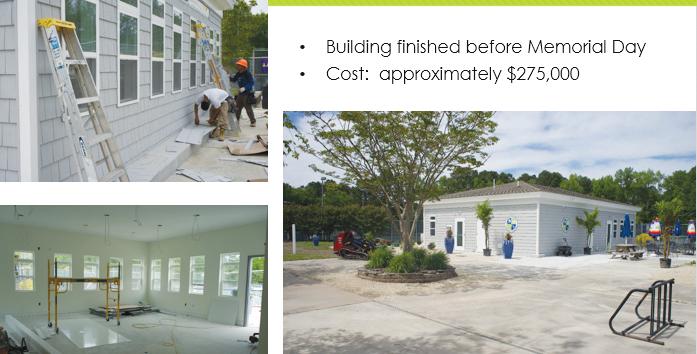
By ROTA L. KNOTT Contributing Writer



General Manager John Viola provided updates on two major recreational improvements, the completion of the new Racquet Sports building and the installation of bocce ball courts at the Yacht Club, at the May 24 meeting of the Board of Directors.
Viola reported that the Racquet Sports building was completed just before Memorial Day, with a final cost estimated between $275,000 and $300,000. The project originally began as a renovation to expand and modernize restroom facilities for racquet sports players.
“The need was restrooms—we did accomplish that,” Viola said. However, once the renovation began and contractors opened the walls, they
discovered the building’s construction had significant issues, including the fact that it had been built on a sidewalk.
As a result, the scope of the project expanded to include the construction of an entirely new structure.
“That is one solid building down there,” Viola added, encouraging members to visit and see the improvements firsthand. The upgraded restrooms have already received a great deal of positive feedback from the community.
Viola also shared the growing excitement surrounding the new bocce ball courts at the Yacht Club.
Interest in the sport has surged, with more than 100 people signed up to play, with some people on a waitlist. League play is scheduled to begin in June. A kickoff meeting for teams was held earlier this month.
Demolition of the existing courts began in April, with Public Works preparing the site. Installation of two new end-to-end bocce courts, handled by Southwest Greens Delaware Valley, began on May 19. The total project cost is $50,692.









When disaster strikes, whether it's wind, water, fire, or mold damage, our expert team is ready to respond quickly and efficiently. Royal Plus uses advanced equipment and techniques to quickly remove water, dry out affected areas, and prevent mold growth, ensuring your property is safe and dry.


Option that would have forced Ocean Pines ratepayers to pay debt from other services has officially been abandoned
By ROTA L. KNOTT
Contributing Writer
Worcester County has officially abandoned a controversial proposal that would have spread equally across all service areas, including the Ocean Pines Service Area, $2.1 million in water and wastewater system deficits and existing debts.
County Administrator Weston Young confirmed during a May 6 public budget hearing that Option 3, the much-debated plan to equalize debt and deficit payments among the county’s 18,000 equivalent dwelling units, is no longer on the table.
Commissioner Chip Bertino, who represents the Ocean Pines area, expressed visible relief upon hearing that Option 3, which would have Ocean Pines ratepayers to take on debt from other services areas, was no longer viable.
“I heard something this evening that I had not heard before—that Option 3 is not feasible,” Bertino said during the hearing. “So the $32 [quarterly fee increase] that was being discussed is no longer part of the discussion.?” He asked.
Young responded in the affirmative.
The announcement was met with applause from the audience, signal-
ing the deep concern among residents about having to pay for debts accrued by other systems.
When Bertino pressed for clarity, Young confirmed that “the existing debt, yes, that option is now off the table.”
The decision represents a pivotal moment in the county’s effort to stabilize its financially struggling water and wastewater enterprise fund. It also comes as a relief to ratepayers in lower-debt service areas like Ocean Pines, who rallied against sharp increases in quarterly bills under the now-defunct plan.
It also represents a significant victory for the Ocean Pines Association, which together with Bertino and his colleague Jim Bunting mounted a high octane public campaign in opposition to Option 3.
At the heart of the issue is the nature of water and wastewater enterprise funds. As Young explained, “ideally, an enterprise fund should bring in enough revenue to cover operations, maintenance, capital costs, and build reserves.” That hasn’t been the case in recent years.
A review of actual revenues and expenditures from fiscal years 2023 and 2024, alongside the 2025 budget and 2026 projections, reveals a troubling trend: Revenues are falling short of expenses, particularly

1,595
once capital costs and depreciation are factored in. This imbalance has led to borrowing and under-budgeting in multiple service areas, factors that pushed the county toward radical rate restructuring proposals like Option 3.
In FY24, the county had 66 employees working to maintain water and wastewater systems, with personnel costs rising by about 5.5 percent annually. Supplies, including essential chemicals for treatment, have jumped by 14 percent year-over-year, with some chemicals seeing a 145 percent increase since 2021. Maintenance costs, including vehicle operations, grounds-keeping, consulting, and utility bills, have also increased by more than 7 percent annually.
Option 3 was promoted by some commissioners earlier this year as a solution that would spread both existing debt and operating deficits across all EDUs countywide. With approximately 18,000 EDUs and 16,000 customers, each account would have paid an equal share to stabilize the fund, regardless of their actual usage or legacy debt.
The plan was controversial from the outset. Critics, including Bertino and Bunting, argued that it unfairly burdened customers in well-managed or lower-debt service areas,
like Ocean Pines, with costs they didn’t incur.
Ultimately, Young claims technical feasibility, not public opposition, sank the plan. Bertino and the OPA would probably disagree with that analysis.
“Since we locked down our budget in March and advertised option 3 we’ve learned that neither option 3 or option 4 are technically feasible,” Young said. Spreading the deficit would require a change to the county code. Even more problematic was the idea of spreading existing debt. The county’s bond counsel expressed serious reservations, he said,
With Option 3 and its variation, Option 4, which proposed using a general fund loan, off the table, the county is turning its attention to other potential proposals to keep existing debt within the service areas where it originated.
Some of the uniformity proposals included in the enterprise fund budget will still be pursued, including, a standard base fee per EDU to replace tiered rate structures: uniform usage rate of $5 per 1,000 gallons, rising to $15 after 22,500 gallons per quarter; and standard accessibility fee for customers with EDU capacity but no active hookup.
Young emphasized the importance of these reforms in promoting fairness and transparency. Some service areas had tiered rates, others didn’t. Some charged accessibility fees, others stopped. The inconsistency created confusion and inequity, he said.
The county’s water and wastewater system has long struggled to bring in enough revenue to cover its operating and capital expenses.



From Page 20
In recent years, under-budgeting has exacerbated the problem. As the enterprise fund dipped into reserves and took on more debt, administrators began looking for long-term structural solutions.
Data presented by Young showed that, without intervention, many service areas would continue to operate at a loss under current FY25 rates. Even under the “do nothing” Option 1 scenario, the overall projected loss nearly doubles.
Option 2, which proposed that each service area charge what was necessary to be self-sustaining, revealed a harsh reality: Some smaller service areas would face massive quarterly bills, according to some making the model financially unviable for many residents.
Ocean Pines’ wastewater treatment facility, visible off Route 90 near the St. Martin’s River, is one of the county’s larger and more complex systems.
Despite its size, it faces many of the same budgetary pressures: rising costs for chemicals, utilities, and maintenance.
Under the now-defunct Option 3, Ocean Pines would have seen quarterly bills rise significantly, at least $32 per EDU, to help cover deficits elsewhere.
The shift away from Option 3 also opens the door for broader reforms. County officials have pledged to work on new budget scenarios and rate structures that maintain fairness while ensuring the sustainability of critical infrastructure.
“We’ve been working on new scenarios to discuss with the commissioners at their next budget,” Young
By ROTA L. KNOTT Contributing Writer
Worcester County officials remain without a long-term solution to address a more than $9 million deficit in its water and wastewater enterprise funds, despite rejecting a controversial proposal that would have evenly distributed a new $2.1 million shortfall across all service areas for fiscal year 2025-26.
The proposal, which would have spread the oneyear deficit burden across all 11 water and wastewater service areas regardless of individual financial performance, sparked vocal opposition from the Ocean Pines Board and residents who argued the plan unfairly penalized ratepayers in the fiscally responsible service areas. That plan has since been removed from consideration.
But the deeper issue of how the county intends to handle the $9 million transferred from the general fund in FY25 to cover years of accumulating deficits remains unresolved.
In early 2024, county budget officials discovered significant financial inconsistencies in the handling of the enterprise funds, which are required
by law to be self-sustaining. The deficits were quietly covered through unauthorized internal transfers from one service area’s fund to another, often on paper only and with no actual reserves to back them.
These transfers were made without commissioner knowledge or approval, said Commissioner Chip Bertino, who noted the shortfall was discovered when new budgeting procedures were implemented last February.
In response, the Worcester County Commissioners authorized a $9.06 million general fund transfer to stabilize the enterprise funds. Of that amount, $2.7 million was designated as a grant to the financially troubled Riddle Farm service area, while the remaining $6.36 million was loaned to six other struggling districts, including Mystic Harbor ($1.73 million), The Landings ($790,000), and Edgewater Acres ($242,000). The loans are scheduled for repayment beginning in 2026-27 with 5 percent interest over a ten-year period.
However, the 2025-26 proposed budget like to be approved this month does not include any repayment of the loan, leaving questions about future rate hikes
To Page 24
said. He added that the county is continuing to evaluate options that are legally sound, fiscally responsible, and equitable for all ratepayers.
The abandonment of Option 3 underscores the value of public engagement in local government decision-making.
Bertino said he appreciates that the public stayed involved. Their
feedback helped guide this process, and the county is moving toward a better solution as a result, Bertino said.
An April 2025 letter outlined in detail the Ocean Pines Association’s objections to what it characterizes as a planned “unlawful and unfair” water and sewer debt allocation scheme.
The Ocean Pines Service Area, one
of the largest and most financially stable in the county, was being asked to pay ten times the amount of deficit that was actually incurred in that service area. Ocean Pines’ share of the deficit is $116,699. Under the proposal, however, Ocean Pines rate payers would have been charged approximately $1.1 million.



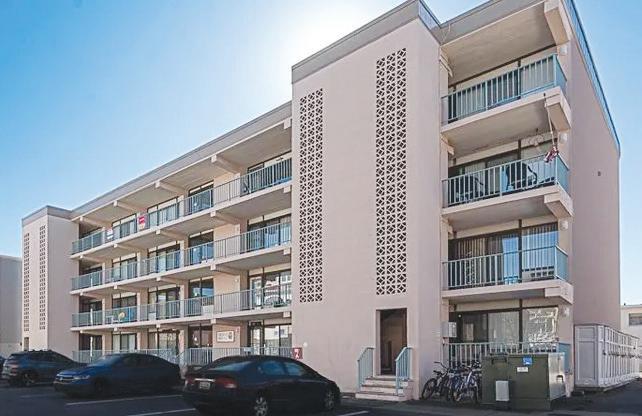





By ROTA L. KNOTT
Contributing Writer
During the public comments segment of the May 24 Ocean Pines Association Board meeting, Steve Ransdell, chair of the OPA Elections Committee, addressed the Board with a formal request for centralized coordination
of this summer’s referendum on the proposed new Southside fire station.
Ransdell emphasized the logistical challenges in managing election-related tasks such as printing and distributing materials. He urged the Board and administrative staff to keep the Elections Committee informed throughout the referendum


process to ensure smooth execution.
Turning to community members, Ransdell explained that the recent extension of the candidate filing deadline for this year’s election caused delays in preparing and printing election materials. As a result, he warned there would be limited time for currently ineligible




residents to resolve their eligibility issues before ballots are sent out.
“You’re eligible to vote if your dues are paid and you have no CPI violations,” Ransdell reminded residents. “We can only send ballots to the contact information we have on file in the administration office.”
He strongly encouraged all OPA members to verify that their email and physical mailing addresses are up to date with the OPA administration office to avoid missing important election documents.
Responding to concerns raised in a previous Board meeting about transparency within the Elections Committee, Ransdell acknowledged that a few early-year meetings did not take place due to logistical issues. “You can’t post minutes for a meeting that didn’t happen,” he said, defending the committee’s record. “Our only focus is running a free and fair election. Negative information doesn’t help our effort.” Ransdell, whose term on the com-
Debt battle not over From Page 22
and how the financial burden will be distributed.
County Administrator Weston Young noted that forgiving the loan entirely would push the cost onto all county taxpayers, not just ratepayers of the subject service areas, creating yet another fairness dilemma.
Meanwhile, Young acknowledged that if each district were required to cover only its own deficit, some could face steep rate increases, while others would see minimal change.
Compounding the issue is Section 5-310 of the Public Works Article of the Code of Public Local Laws of Worcester County, which requires each enterprise fund to balance its expenses with user charges and fees within each service area, which would leave the county vulnerable to lawsuits should it attempt to socialize the costs equally across all service areas.
Bertino, colleague Jim Bunting and the Ocean Pines Association have vowed to remain vigilant as the county tries to come up with a solution to the long-term debt overhang.




June ... The Start of Vacations, Graduations, Weddings, Father’s Day ...



We Buy Your Unwanted or Broken Gold, Silver & Platinum Jewelry. Receive 10% Extra Over Cash Value If Used For Your Purchase!



Open Wednesday thru Saturday, 10 a.m. - 6 p.m. Monday & Tuesday by Appointment


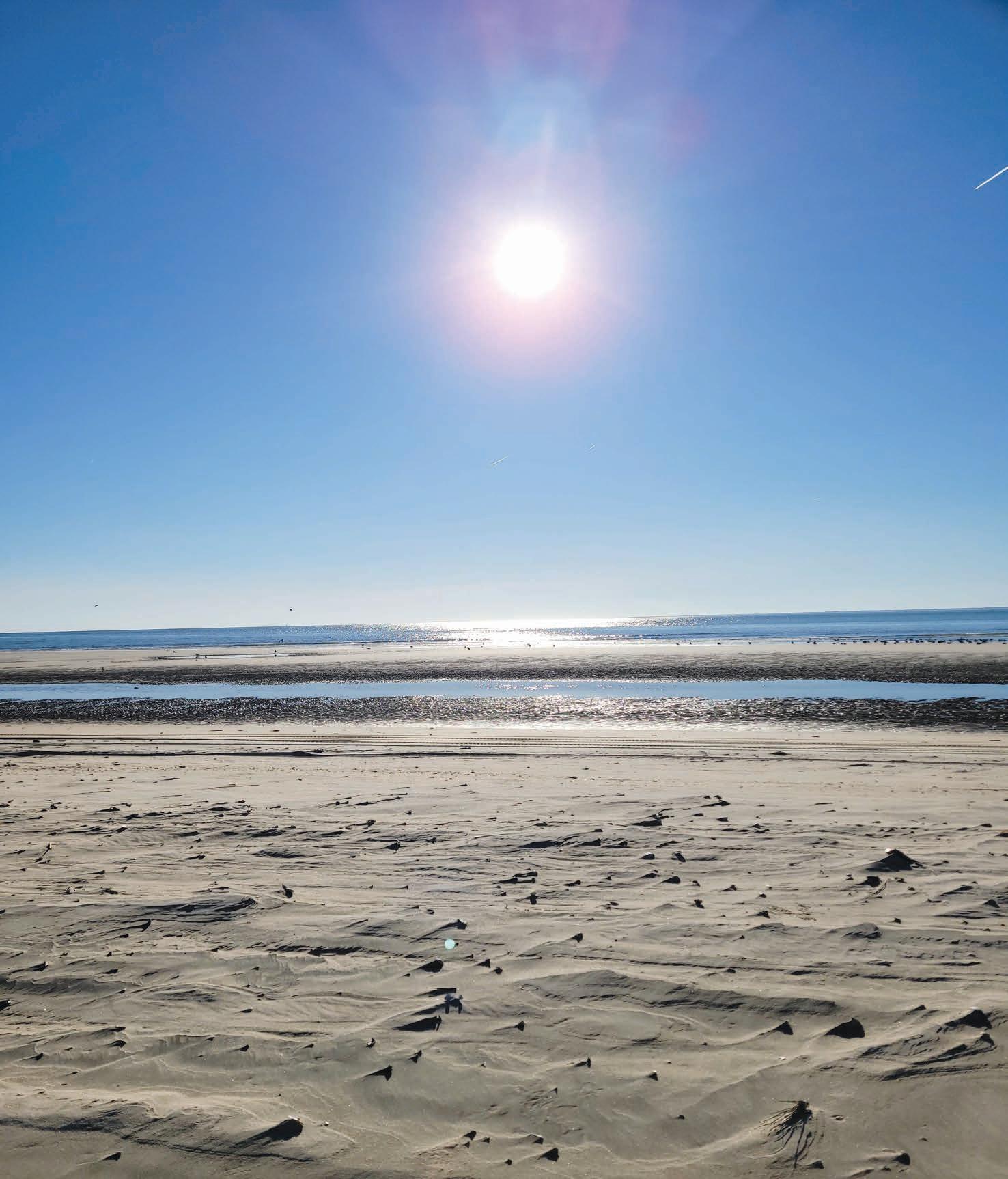
Public comments
From Page 24
mittee ends in April of next year, offered no explanation for why the committee did not meet to discuss competing proposals from vendors to manage this year’s Board election. The vote to recommend ACE Printing and Mailing of Berlin to manage the election at one point during the selection process was conducted by Ransdell by telephone. After ACE pulled out of the competition, the Board decided to award the contract to MK Election Services of Pittsburgh, Pa., last year’s vendor.
OPA President Stuart Lakernick echoed Ransdell’s message, encouraging residents to confirm their contact details with the admin office to help ensure a smooth voting process. He did not address the transparency issue.
Jerry Leuters expressed frustration over updated property improvement regulations implemented by the OPA and the impact on his wallet.
Leuters, who has previously completed renovations on his property, said the current requirements outlined in the Architectural Review Committee guidelines were not in place during his earlier projects.
He said when he made improvements to his property in the past, the regulations didn’t require half of what they do now. One of those things is a site survey when someone completes a construction project. “It’s not a site survey, it’s a site plan.”
He explained that he communicated with a surveyor to comply with the new standards and was told the required documentation would cost $2,600. “And I’m putting up a four-foot wood fence — doing it myself — and that’s going to cost me $1,200,” Lueters added. “Until something changes, I’m not doing any more improvements on my property. People are paying ridiculous amounts of money.”
Linda Martin, OPA director of business administration, responded to Leuters’ concerns, explaining that the requirements he referenced were introduced in last year’s

revisions to the ARC guidelines.
Any project now requires an ‘asbuilt’ survey once the project is complete, showing the measurements of the house and additions on the property, Martin said. “What he stated is what it’s called.”
Leuters pushed back, questioning whether the site survey was required for new projects or retroactively for past work, and called for clarification on whether what’s being requested is truly a “survey” or a “site plan.”
Martin indicated that the purpose of the requirement is to provide a complete representation of all improvements on a property.
Resident Brett Murphy addressed the Board during the public comment period, stating that he was there for “fact-finding” and to gain a better understanding of how the community operates.
“Thanks for teaching me what Ocean Pines does,” Murphy said, noting that his primary goal in attending was to learn how community funds are allocated. He expressed particular concern over a recent compliance issue that impacted his neighbor.
Murphy shared that his neighbor, who maintains a meticulously kept yard, received a property violation notice from the Compliance, Permits, and Inspections Department. He said he initially questioned the reasoning behind the violation, suggesting that it seemed unwarranted given the neighbor’s careful maintenance. But, he said, OPA staff explained the reason for the violation notice.
James Tyndall, of the immaculately kept yard next door, said he


had just built a garage and moved some brush and leaves toward the ditch line. He said he cleaned it up. He said he received a second violation notice and didn’t understand why. But he contacted CPI and got the issue resolved to everyone’s satisfaction.
Tyndall suggested that violation notices specifically say what needs to be addressed on a property, and not simply state “second notice.”
In response, Director Elaine Brady explained that the recent uptick in violation notices is tied to proactive efforts to address drainage concerns throughout Ocean Pines.
To ensure the drainage system was functioning properly, the operations team had to be proactive, Brady said. If there are a lot of leaves in the drains, it leads to flooding.
Brady emphasized that the enforcement push was not intended to target individual homeowners, particularly those with well-maintained properties. Instead, she said, it was a community-wide effort to ensure leaves and debris were cleared to prevent water backups and flooding.
“It really wasn’t anything personal,” she advised. The OPA just wanted to mitigate the flooding. Ocean Pines is home to approximately 8,500 residences, and Brady noted that the entire system relies on water being able to flow freely through its drainage infrastructure.
OPA President Stuart Lakernick echoed her sentiments and encouraged residents to contact the administration if they receive a violation and have concerns or questions.
Carolyn Dryzga shared the work

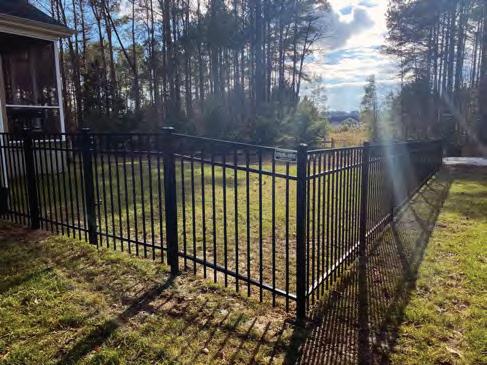


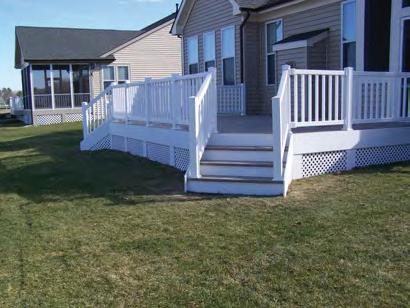


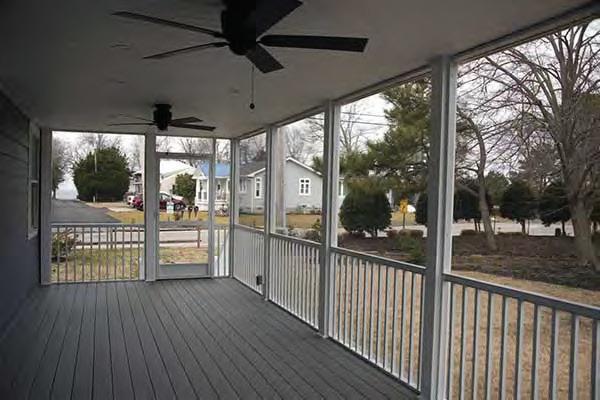


By ROTA L. KNOTT
Contributing Writer
The Board of Directors has approved a $33,395 contract with American Tennis Courts Corp. to repair cracks on the community’s tennis and pickleball courts. The decision, made during the Board’s May 24 meeting, follows a staff recommendation presented by General Manager John Viola.
The project is $1,300 over the originally budgeted amount of $32,000. Viola acknowledged the overage but emphasized the importance of maintaining the courts in playable condition.
During the discussion, Director Steve Jacobs sought clarification on which courts required repair, asking whether they were the same courts previously discussed during the budget planning process.
He asked is they are they the older ones that were built on a layer of sand that had been fixed a couple of years ago, and now it’s the same problem again. “Is this the same courts?” Jacobs asked.
Viola confirmed that the courts in question are the older ones and not the newer pickleball courts built three years ago. The new courts have no cracks because they were built on a proper subbase, he explained. The older courts weren’t constructed with that same foundation, which has led to ongoing issues.
Viola noted that while previous repairs were made at significant cost, the fixes have not lasted as long as hoped. Nevertheless, he reaffirmed the OPA’s commitment to maintaining the courts to the best extent possible.
The Board unanimously approved the contract to move forward with the repairs.














Several Ocean Pines residents were recognized for their kindness, generosity, and community spirit during a recent ceremony, where Ocean Pines Association President Stuart Lakernick presented the Ocean Pines Good Neighbor Awards.
The awards highlight residents who go above and beyond to support their neighbors and improve the community through acts of kindness.
Robert Griffith was nominated by an elderly single woman who praised him for regularly clearing her driveway and walkway, helping her maintain independence and safety.
Kim Ritter received accolades from several neighbors who consider her an “adopted mother and grandmother.” With no family nearby, they rely on her for everything from snow shoveling to shared meals and emergency support. She has even handmade quilted blankets for neighborhood children.
Chris Rush was recognized for consistently shoveling a neighbor’s walkway and driveway to ensure they could get to work safely during winter storms.
Joe Wilkinson, along with his wife Vicki, was praised for introducing himself to a new neighbor and lending a hand with yard work for an older resident. The couple also encouraged their neighbor to get involved with the local firehouse, promoting community engagement.
Esther Diller was honored for her efforts through a Facebook group she created called Get Involved, which connects residents with volunteer and charitable opportunities.
Her initiatives include food drives and “Operation Flip Flop,” a project that supports local children attending summer camp, in partnership with Worcester Gold.
In his May 24 remarks, Ocean Pines Association President Stuart Lakernick praised a recent grassroots victory and celebrated the overwhelming success of this year’s Ocean Pines Day, calling it a shining example of community unity and spirit.
“Folks, we had a huge win for Ocean Pines,” Lakernick declared, referring to the May 6 Worcester County budget hearing where officials announced they would no longer consider “Option 3,” a proposed water and wastewater rate change that the OPA argued was unfair and financially burdensome.
To Page 30
From Page 26
of the Twilight Wish Foundation, a Pennsylvania-based nonprofit dedicated to granting wishes to senior citizens, including those living in nursing homes or who are homebound.
Dryzga, an active local volunteer, said many of the foundation’s wish recipients are residents of Worcester County and some from Ocean Pines.
“It’s been a magical journey,” Dryzga told the board. Since its founding in 2003, the Twilight Wish Foundation has granted more than 6,500 wishes to seniors.
Among the wishes granted locally, Dryzga highlighted the story of two men from the Worcester County Developmental Center whose wish
was to sit in a hot rod. With help from the OC Cruzers Classic Car Club, not only did they get to sit in the car—they were taken for a ride. “It put a smile on the faces of everyone,” she said.
Another memorable wish came from a 98-year-old Korean War veteran who was housebound and wished for dinner out with his family. A former participant in the first White Marlin Open, he was treated to a special evening at Harrison’s Harbor Watch, thanks to the Harrison Group, which comped the entire meal for him and his family.
Additional wishes have included trips to Orioles games and fishing excursions, all aimed at bringing moments of joy and dignity to older adults who may otherwise feel forgotten.




From Page 28
The proposal would have forced all ratepayers in the county’s service areas to share equally in repaying debt incurred by only a portion of users. Thanks to coordinated opposition led by Commissioners Chip Bertino and Jim Bunting, along with strong advocacy from the Ocean Pines Board of Directors, the plan was abandoned.
“Together, we made our voices heard loud and clear,” Lakernick said. “This victory means that Ocean Pines service area ratepayers, along with others who did not contribute to this debt, will not be held responsible for paying it off.”
He emphasized that the win goes beyond Ocean Pines.
“This is not just a win for our community, but a win for fairness and common sense across the county.”
However, Lakernick also cautioned residents that the fight isn’t over. Worcester County still faces a debt of more than $6 million, and there are concerns the burden may return in the Fiscal Year 2026 budget cycle.
“We must remain vigilant. We must stay united and continue to advocate for fair, transparent fiscal policies,” he said, thanking everyone who made their voices heard during the process.
In addition to this policy victory, Ocean Pines had another reason to celebrate. The community gathered in force for Ocean Pines Day on May 17, the event’s second year.
“Ocean Pines came alive with energy, community spirit, and a strong sense of togetherness,” Lakernick said, applauding event organizers Gary Miller and Linda Yurch, as well as staff, volunteers, and vendors who made the day a success.
The celebration was so large large last year it had to be moved this year to the Worcester County Veterans Memorial Park to accommodate the turnout.
Even with the expanded space, vendor tables sold out, and dozens of local clubs, organizations, and businesses participated, offering everything from arts and crafts to recreation and service information.
“There was truly something for everybody,” Lakernick said. “This event is a reflection of the vibrant and active community we are proud to call home.”
General Manager John Viola accepted a Premier Workplace Safety Award on behalf of the Ocean Pines Association on May 7, presented by Chesapeake Employers’ Insurance Company. The award recognizes organizations that maintain outstanding workplace safety records.
Ocean Pines achieved the honor by maintaining a loss ratio of 23.59 percent for five consecutive years. Viola credited the award to a team effort, stating, “We start off every staff meeting with talking about safety.”
Linda Martin, director of business development, reported that Public Works crews have been busy installing seasonal landscaping across Ocean Pines. Spring and summer flowers now adorn all facilities, and new palm trees were added at the North Gate, Yacht Club, and Beach Club, helping to beautify popular community areas.
A new gazebo is being added to the small dog side of the Ocean Pines dog park to provide shade and rain protection for users. The gazebo, requested by park patrons about a year ago, will seat 12 to 15 people.
The structure, which costs approximately $6,000, is being supplied by Woodland Sheds, with delivery expected in six to eight weeks.
Martin announced that the reconstruction of the gymnasium floor at the Community Center was finished on May 17, though it remained unavailable for immediate use as it needed to cure for at least a week.
Installed by Dynamic Sports Construction for $62,300, the floor replaces the previous surface damaged by a water leak. Martin described the new flooring as “quite impressive.”
Martin emphasized that the OPA’s Strategic Plan, adopted in 2022, re-











mains an active and regularly updated document.
“This is not something we sit on the shelf,” she said. The most recent update was made in March 2025, focusing on drainage improvements.
The full strategic plan can be viewed on the OPA website at oceanpines. org, under the Departments > General Manager section.
As of April 1, there were 528 outstanding property violations outstanding with the Compliance, Permits, and Inspections office. Another 141 violations were initiated in during the month, including 40 maintenance, trash or debris; 12 leaf maintenance or placement, 24 no permit, 14 signs, 3 trees and 47 miscellaneous, such as easements, vehicle parking, permit expiration, trailers, and junk vehicles.
CPI closed out 314 violations during the month, but there were still 355 remaining as of month end, including 80 maintenance, trash and debris, 63 leaf maintenance or placement, 77 no permit, 12 signs, 8 trees and 115 miscellaneous.
Public Works had 120 open work orders as of April 1 and received 134 new work orders during the month, including 12 bulkheads, 50 drainage, 18 grounds and landscaping, 12 roads, 6 signs, and 36 general maintenance. It had 144 open at the end of the month, with 92 of those open work orders for drainage issues.
The OPA had 90 customer service contacts in April, including 17 for amenities, 18 for CPI, 5 for drainage, 40 in general questions or comments, and 10 for public works.
The Board of Directors voted during the May 24 meeting to find numerous properties in continuing violation of the restrictive covenants and to
suspend the owners’ use of Ocean Pines Association amenities and their voting rights.
Martin said the owners of all of the subject properties received first and second notices of the outstanding violations and none of them requested a hearing before the Board.
Properties at 26 Moby Dick Drive, 91 Nottingham Lane, 1225 Ocean Parkway, 37 Liberty Street, 8 Willow Way, 108 Park Side Circle, and 16 Footbridge Trail were all found in continuing violation and had their rights suspended.
The Board reviewed and approved having a contractor resolve violations on another batch of properties. Those properties were 39 Falconbridge Road, 41 Tail of the Fox Drive, 11 Brandywine Drive, and 16 Footbridge Trail.
The Ocean Pines Association’s cash and investment position was $17.7 million on hand on April 30, according to a report by OPA Treasurer Monica Rakowski at the April 24 Board of Directors meeting.
Cash decreased $1 million from the same time last year but increased $3.4 million from the prior month
Of the cash on hand, $8.8 million was invested in CDARs, and $48,000 in interest income was recognized for the month.
The remaining $8.9 million was invested in an insured cash sweep, treasury bills, money market and other operating accounts, diversified between two local banks.
The Board of Directors made two appointments to advisory committees during the May 24 meeting.
Jennifer Compston was appointed for a first term to the Environment and Natural Assets Committee. Kevin Middleton was reappointed to the Architectural Review Committee.


By CINDY HOFFMAN
Contributing Writer
Leaves and drainage are two significant issues in Ocean Pines. The community is lush with trees and many lots are forested with pines and oak, mountain laurel and other trees and bushes. But with the beautiful greenery comes yard maintenance. Sometimes leaves can clog ditches, which are vital to draining waterlogged properties after big rainstorms.
These issues have been regularly discussed by the board, and efforts have been made to rectify some of the drainage issues.
Recently, CPI has been more heavily enforcing leaf removal on properties. As of April 1, OPA has reported 63 leaf maintenance/ placement with 12 new violations.
The Ocean Pines Progress reached out to the Board candidates Steve Jacobs, Stuart Lakernick, Amy Peck and Monica Rakowski to ask them about leaf removal efforts and drainage problems in Ocean Pines.
They’re not all on the same page. Peck faults the Board for overly aggressive execution of the current policy, which asks homeowners to
remove leaves from yards and in drainage ditches in front of homes.
Pine needles, on the other hand, are not targeted for removal under the current policy.
Progress: There seems to be a backlash from many residents on the increased enforcement of leaf removal. Many lots in Ocean Pines are wooded. Leaving some leaves especially over the winter is helpful habitat for many animals. Why is there suddenly an effort to remove all leaves in Ocean Pines? What do you say to those who think the enforcement has gotten overly aggressive?
JACOBS: Leaves - I start from a very basic point, we live in a forest, leaves and pine needles (assorted other falling matter) are a fact of life. Second, we all have a duty to keep the ditches open and allow water to drain and flow freely. I think the worst thing we can do is become the leaf police.
As I mentioned, one of our community’s best features is the uniqueness you see from home to home. No question some lots need to be better maintained and in some
cases significant intervention may be necessary. I do not claim to be an expert in the issue of what constitutes ground cover or other related subjects. My hope is that we employ a measure of common sense and address each matter on a case-by-case basis.
LAKERNICK: There hasn’t been a sudden push to remove all leaves from Ocean Pines — that’s an overstatement. What’s really happening is that this Board was elected with a clear mandate to uphold our governing documents, which had been inconsistently enforced for years. Our goal is to bring consistency and accountability while still being reasonable and fair.
Many residents have actually reached out to thank us for how much cleaner and more attractive the community looks. This isn’t just about aesthetics; it’s also about function. Leaf buildup can contribute to drainage issues, and since we’ve stepped up enforcement, we’ve seen a noticeable improvement in flooding conditions.
That said, we understand concerns about habitat and natural landscaping. If a resident receives a notice from CPI, we strongly en-
courage them to call Linda Martin. She’s more than willing to work with people. Communication is key. We’re not here to punish, we’re here to preserve and improve the quality of life in Ocean Pines.
PECK: Ocean Pines has a storied legacy of natural beauty, with our governing documents designed to protect that heritage. Yet, some current enforcement measures appear driven by a modern aesthetic influenced by Board members living in waterfront homes and condos -- an aesthetic that may not fully appreciate our community’s enduring character.
For instance, issuing violations for pine needles and leaves in cooler weather (when temperatures are below 50°F, pollinators are dormant, and the public works yard is closed) appears misguided. This approach contradicts Maryland House Bill 322, which supports low-impact landscaping, and disregards our Declaration of Restrictions intended to safeguard the woods and trees that define Ocean Pines.
Despite my concerns, the Board recently decided that leaves and pine needles pose a fire hazard: an inconsistency when compared to



From Page 35
past decisions, such as allowing fire pits in 2018 even though the DRs do not permit wood burning. While safety is crucial, our enforcement must honor our legacy by focusing on preserving our community’s natural character rather than imposing overly aggressive measures.
We all want a beautiful neighborhood; the Board should focus on rundown houses and junk piles rather than on leaf cover in yards or homeowners having a reflector at the end
of their driveway. The DRs must be followed and should not be reinterpreted without public input.
RAKOWSKI: Yes, there has been an increase of CPI violations involving leaf removal. When violations are reported we must act to follow our governing documents. For those that think we are being aggressive, directors are not handing out the violations, we are following the rules.
PROGRESS: There are still drainage issues in parts of OP. What do you think needs to be done to address these issues?
JACOBS: Drainage - - The fact
is that we live in an area that is at or in some cases below sea level and when we get a significant amount of precipitation, we have drainage issues in parts of Ocean Pines. Keeping our drainage ditches clear of all sorts of impediments is a step forward. When problems arise, work with our staff to get the matter addressed as quickly as possible. I am not aware of a community wide solution to this problem, but if someone has some thoughts I would like to hear them.
LAKERNICK: Drainage remains an ongoing challenge in certain


parts of Ocean Pines, and it’s something our operations team takes very seriously. We’ve made progress in recent years, but we know there are still areas that need attention, particularly after heavy rainfalls. Addressing these issues requires a multi-pronged approach. First, we need to continue evaluating and prioritizing problem areas through engineering assessments and community feedback. From there, it’s about funding and phasing solutions—whether it’s clearing ditches, upgrading culverts, or improving stormwater management systems. We’re also exploring long-term, sustainable solutions that take into account changing weather patterns and the evolving needs of our infrastructure.
Most importantly, it’s going to take continued collaboration between our Public Works team, advisory committees, the Board, and residents to ensure we’re identifying problems early and maintaining the systems we already have in place.
I want the community to know: we hear you, we understand the frustrations, and we are committed to taking action—not just for temporary relief, but for lasting improvements.
PECK: To resolve the persistent drainage issues in Ocean Pines, I believe the Board should reassess its approach to ditch maintenance. Specifically, OPA should explore reinstating our vacuum truck service and keeping the Public Works Yard open more often. Given that the OPA recently invested in several expensive projects, including the Tiki Bar Expansion, the new (yet less effective) electronic signage, an over-budget gazebo, and the racquet center, and even voted unanimously to explore funding a very expensive dedicated boardroom, it appears we have the financial flexibility to prioritize more proactive, cost-effective infrastructure maintenance. Redirecting funds and refocusing on proper ditch maintenance will directly address our drainage challenges head-on and help safeguard the long-term wellbeing of our community.
RAKOWSKI: I do not foresee a future in Ocean Pines where there will not be drainage issues. Personally, my front and back yards flood every time it rains. A small pump with a hose extended to the ditch helps pull the water from my yard to the ditch. I encourage anyone having concerns about a drainage issue email, info@oceanpines.org
By CINDY HOFFMAN
Contributing Writer
Summer is election season for the Ocean Pines Association Board of Directors. Homeowners have the opportunity to vote for candidates for three open seats. At press time, there were four candidates, including incumbents Steve Jacobs, Stuart Lakernick, and Monica Rakowski. Amy Peck, a former appointed Board who ran two years ago and came close to winning a seat and who ran last year coming up short by about 600 votes, has launched a comeback bid.
The Ocean Pines Progress sent a series of questions out to each candidate for their responses.
The candidate application deadline has been extended until June 20 from the original May 12 date to allow for additional candidates to submit applications since the required minimum number of submissions was not met.
The OPA by-laws direct the OPA to attempt to solicit additional candidates if there are less than two more than the vacancies to be filled.
On May 27, the Elections Committee conducted the annual draw for position on the ballot for this year’s election.
Drawn at random using a series of playing cards, the results also determine the order candidates are seated during the election forum hosted by the Elections Committee.
Lakernick will be the first candidate listed on the ballot, followed in order by Rakowski, Jacobs and Peck.
Anyone who files as a candidate before the new June 20 date will automatically be positioned under Peck on the ballot.
Voters will have the opportunity to vote by mail or electronically for 30 days beginning in July and ending Wednesday, Aug. 6.
Ballots will be counted by MK Election Servides of Pittsburgh, Pa., the same company that managed last year’s election for the OPA, and results will be announced Aug. 7, the Thursday before the annual meeting, currently scheduled for Aug. 9.
Questions posed by the Progress to candidates and their responses appear below.
Provide your work background and how the skills you acquired are helpful in being a board member?
JACOBS: I worked for approximately eight years on Capitol Hill as a legislative assistant/firector and approximately 20 or so years as vice president, legislative affairs, for two trade associations in the telecommunications field. I was in private law practice with two general practice suburban law firms and served eight and a half years with the Attorney General’s office doing various child support litigation.
Taken as a whole my work experience allows me to hear all sides of an issue and work cooperatively with interested parties to find common solutions.
LAKERNICK: I currently serve as the president of our association and bring with me over 33 years of experience as a practicing chiropractor. Throughout my career, I’ve managed a successful healthcare practice, which has involved overseeing staff, handling budgeting and finances, and maintaining high standards of service and ethics.
Running a practice requires discipline, strong organizational skills, and the ability to make thoughtful decisions, all of which translate directly to effective Board leadership.
I’ve also helped thousands of people over the years, which has strengthened my communication and problem-solving skills, essential traits when working with fellow Board members and addressing the needs of our community.
Being president of the association has given me a deeper understanding of how to balance the diverse interests of homeowners while ensuring the long-term health and stability of the community.
My professional and leadership background gives me a strong foundation to serve with fairness, dedication, and a clear focus on results.
PECK: I bring a unique blend of skills from my diverse career, combining legal insight, clear communication and strategic management with a lifelong commitment to community service. As a paralegal, I developed a
keen eye for detail, honed my research skills, and gained an understanding of legal frameworks. My career in teaching and school administration taught me how to simplify complex ideas for easy understanding, foster an inclusive environment, and oversee operations, balance budgets, and make sound decisions under pressure. I have served on two other large homeowners’ associations.
Since 2002, I’ve been an active part of our community, gaining first hand experience of Ocean Pines’ history, governing documents, and values through events, meetings, amenities, and daily engagement. Together, these experiences empower me to serve our homeowners’ association with balanced, informed decision-making and a genuine connection to our community’s heartbeat.
I’m ready to bring this passion and expertise to the board and help guide our community forward.
RAKOWSKI: I began my career at the Federal Reserve Bank, Baltimore Branch. I learned the ins and outs of finance. I developed skills that provided a solid base for working with others and developing a team to make goals and reach them.
other volunteer efforts are you involved with?
JACOBS: I am a member of Temple Bat Yam and I am continuing a decades long search to be more consistent playing golf. Not better, just more consistent. I am also using free time to get through as many crossword puzzles as I can on a weekend and spend time with Nicki (my wife) and Desi (cat).
LAKERNICK: I’ve been actively involved in volunteer service for many years. I’m both a Lion and a Rotarian, and my main platform within those organizations is feeding the less fortunate. I’ve helped organize and participate in numerous food drives, coat drives, toy drives, and initiatives to help children in our community attend camp.
One cause I’m particularly proud of is my work with Operation Stand Down, where we help get homeless veterans off the streets and connect them with the VA and transitional housing. For me, volunteering isn’t just something I do. It’s a commitment to building a stronger, more compassionate community.
PECK: Giving back is important, and I’ve dedicated countless hours to serving our community through a wide range of volunteer initiatives, both within and beyond Ocean Pines.
Locally, many residents recognize my efforts through my active presence on the Ocean Pines ROC social media platform, where I keep everyone informed and engaged. On this platform, we also spotlight essential local organizations, including Worcester County Foster Care, the Child Advocacy Center, the Department of Social Services, and Diakonia.
Beyond Ocean Pines, I have long supported Habitat for Humanity, and my family’s dedication to service is evident in my husband’s many years of work at the Restore Shop and his current service on the board of the Assateague Coastal Trust.
Additionally, I volunteer with the OC Arts Council and have spent the last six years contributing to the efforts of Maryland Coastal Bays, where my husband serves as a member of the Citizens Advisory Committee.
Collectively, these experiences underscore my genuine passion for civic engagement and my proven ability to make a positive, lasting impact on our community.
RAKOWSKI: I coached baseball, softball, and soccer. I was VP of the Mother’s Club while my daughter attended parochial school. I was co-chair of auction events, raising thousands of dollars for a non-profit over a period of six years.
I have flipped pancakes for breakfast and served burgers and hot dogs at various events since I was fourteen years of age.
How long have you lived in Ocean Pines?
JACOBS: We have lived in Ocean Pines about five years.
LAKERNICK: I’ve owned a home and lived in Ocean Pines since 2013. While I currently split my time due to my chiropractic practice in Penn-
From Page 37
sylvania, Ocean Pines has always felt like home. My long-term plans absolutely include becoming a full-time resident here, and I look forward to being even more present and involved in the community as that transition happens.
PECK: I’ve had a deep connection with Ocean Pines since 2002, when we bought our home. Every summer, as soon as school ended, we’d pack up the car and head here, with my husband eagerly joining us on weekends. Our sons grew up immersed in the community, creating lasting memories at the beach, at the old Sports Core pool, at the skatepark, on kayaking adventures, during Family Fun Nights, and while biking around the area.
In 2020, we fully embraced this unique lifestyle by making Ocean Pines our permanent residence, cementing our lifelong commitment to this vibrant community.
RAKOWSKI: I moved to Ocean Pines from Baltimore in August 2014.
What makes Ocean Pines a special place to live?
JACOBS: It is a unique, little oasis for us to explore. When we first started looking in Ocean Pines we loved that there were so many different styles of home, no cookie cutters here.
We found it was easy to become friends with our neighbors when we were not running off to work or rushing to something equally important. Less hustle and bustle, which gave us more time to enjoy what the Pines has to offer.
LAKERNICK: I often describe Ocean Pines as being like a cruise ship. There’s something for everyone. From the wide variety of clubs and volunteer opportunities to golf, swimming, racquet sports, parks, and walking trails, you can be as active or as relaxed as you want to be. It’s a place that truly has it all.
The sense of community here is strong, and the opportunities to get involved — or just enjoy the lifestyle — are what make Ocean Pines such a special place to live.
PECK: Ocean Pines isn’t a cookie-cutter community, and I love that! The Pines is a vibrant, diverse neighborhood that truly stands out. The area features an eclectic mix of property styles, which mirrors the variety of residents, from young families and retirees to both full-time and part-time homeowners.
I love living somewhere that embraces different lifestyles while offering amazing recreational opportunities that enhance our quality of life. There is truly something for everyone here in Ocean Pines.
RAKOWSKI: People make Ocean Pines special. The people make all of our wonderful activities and amenities fun. We live in a safe and beautiful community where people can mingle, engage in meaningful dialogue and look out for each other.
What do you see as the biggest challenges the Board has in the coming years? How would you address them?
JACOBS: It is always difficult to look into the future. Clearly, this and future Boards will be stewards to maintain our financial health. Working with John Viola and his team, we need to be efficient in our fiscal decisions while still making investments in Ocean Pines that continue to make it a special place and protect all of our investment decisions.
On a shorter term, we need to move forward on the new fire station and build on the positive feedback we have gotten with our new food and beverage partners.
LAKERNICK: One of the biggest challenges the Ocean Pines Board faces in the coming years is the Southside Firehouse project. The referendum for this critical initiative will be included in the upcoming voting and ballot package.
This project absolutely needs to move forward — the safety of our residents is paramount. Ensuring our first responders have the resources and facilities they need is not just a matter of infrastructure, it’s a matter of protecting lives.
As a Board, we must work together to communicate clearly with the community, answer questions transparently, and ensure the project is completed responsibly and efficiently.
PECK: I see our biggest challenge as managing tighter resources amid
a shifting economic landscape. Reduced grant funding has stalled projects like Jenkins Point and the South Pond Shoreline project.
Our new MOU with the fire department brings added financial obligations, including funding a new fire station and covering higher equipment costs.
Also, we need to continue ensuring that our police salaries remain competitive. At the same time, our community is calling for more indoor recreational space; there are still drainage concerns, aging infrastructure at the Beach Club, and safety issues on our roads.
To address these challenges, I advocate for strict fiscal discipline: prioritizing essential needs over discretionary projects, requiring at least three competitive bids for new work, and pursuing innovative revenue opportunities.
By focusing on accountability, transparency, and careful budgeting, we can make decisions that truly benefit our entire community.
RAKOWSKI: Financial stability will always be a challenge. We have an outstanding GM, who has built a strong team, to grow our finances. We must proceed with the rebuild of the Southside Fire station.
How important are the advisory committees to the Board of Directors? Provide examples of how the Board has worked with the committees.
JACOBS: On more than one occasion, I have made my views known that I see our advisory committees as a valuable resource. It gives our neighbors the opportunity to make a contribution to life in Ocean Pines and provides a second line of communication for the Board and our professional staff to find ways to improve our community.
No single source will be correct all the time and getting additional views from others should be helpful.
As Board liaison to the Golf Committee and the By-laws and Resolutions Committee, I have tried to act as a conduit for informing the Board about concerns as well as informing the committees on matters of importance to them.
LAKERNICK: I believe our advisory committees are incredibly important to the success of the Board of Directors. They’re made up of dedicated volunteers whose expertise and input help guide many of the decisions we make.
For example, the Strategic Planning Committee recently completed a community-wide survey, which provided valuable insight that helps our General Manager align priorities with residents’ needs. The By-laws Committee plays a critical role in ensuring our governing documents remain current and effective.
Meanwhile, the Budget and Finance Committee works closely with our General Manager during the budget process, offering thoughtful input that helps ensure fiscal responsibility.
These are just a few examples.
Every committee plays a vital role in supporting the Board and enhancing our community.
PECK: Advisory committees are vital partners to the Board, offering expert insights and serving as a direct link to our residents. However, recent decisions have marginalized this critical resource.
For example, the Racquet Committee was cut without exploring alternatives, and when the ARC Guidelines changed, the Environmental Committee was excluded from the discussion.
Moreover, the Strategic Planning Committee’s survey was delayed and poorly promoted; no Search Committee has been appointed over the past two years; the Executive Committee’s request for additional meetings was denied; and the Communications Committee’s costly signage project was forced through against residents’ wishes.
I envision a Board that listens and fully integrates homeowners and advisory committees into decision-making.
By restoring transparent communication and honoring each committee’s contribution, we can protect our environment, uphold our traditions, and reflect our community’s shared values.
I am committed to restoring trust and ensuring that every voice is heard in our future governance.
RAKOWSKI: Advisory committees serve as a valuable resource to the Board. The ARC committee enhances and protects the environment, archi-
From Page 38
tectural quality, and economic value of all properties in Ocean Pines.
What are your priorities for the coming years?
JACOBS: As I mentioned, we have to continue our work on financial stability and making wise investments. I have been heartened by a higher degree of cooperation between and among my colleagues on the Board and would like to see that continue. I believe we have moved away from a great deal of the rancor and bad-feeling that permeated the Board several years ago.
I also think everyone in Ocean Pines should be proud of the efforts made to address a horrible proposal at the county level regarding payment of debt incurred by other water and wastewater districts.
The outpouring of letters and communications from Ocean Pines residents as well as getting other HOA’s involved helped significantly. In the future, we would be well advised to keep an eye on what the county does which affects our community.
I ran three years ago as an independent candidate. I welcomed votes from everyone regardless of what they read in social media or heard from their neighbors.
I have tried to make sure that whenever possible, the work of the Board is in the open and that we are answerable to all Ocean Pines residents. I think we have made progress in these areas, but I also believe that we need to be more tolerant of the views of others.
LAKERNICK: My priorities moving forward are to continue the business-first model that has served Ocean Pines well. This approach has helped us maintain low assessments while still offering top-tier amenities to our residents. Public safety remains a key focus.
We need to continue attracting and retaining qualified police officers to ensure our community remains secure. Another top priority is getting the Southside Firehouse built; it’s a critical project that directly impacts emergency response and resident safety.
It has truly been an honor to serve as the president of the Ocean Pines. Association. I’ve been fortunate to work alongside six dedicated colleagues on the Board who always put the best interest of our community first when making decisions.
PECK: Let’s get back to the basics and spend the money like it matters and make sure we are getting three bids for each project. My priorities for the coming years center on a return to the fundamentals of prudent spending. We must evaluate each project based on its potential to generate revenue for our community rather than simply serving as a flashy expense. Every decision should be grounded on careful financial planning, which includes securing competitive bids to ensure that our expenditures truly count.
I want to be a director because our community deserves a leader who courageously challenges the status quo. In the past two elections, I stepped forward while many dedicated residents hesitated for fear of backlash when presenting questions, differing opinions or hard data. I have stayed deeply engaged by listening to residents’ concerns and suggestions, closely following committee work, and truly understanding the issues that affect us all. As I witness the growing dissatisfaction among our neighbors, I am resolved to be the steadfast advocate our community needs.
RAKOWSKI: Financial growth, stability, and safety will be my top priorities. That means following the market trends and ensuring we are getting the best rates and services from our financial partners. I want to continue to follow the wastewater management debacle and make sure Ocean Pines residents are not responsible for debts we have not incurred. Getting the rebuild of the firehouse completed, maintaining a fully staffed police department
What Board accomplishments would you highlight?
JACOBS: I take pride in the fact that I try to just take up each matter individually and not lump a series of issues into one. Two years ago I voted against the budget, because we did not follow the advice of our staff related to price increases in our amenities. In my view, the staff recommendations were correct.
This year’s budget came closer to meeting that need. I believe most of us
would agree Ocean Pines is in pretty good shape right now.
The challenge for the future is to be able to ensure three or four years down the road that continues.
LAKERNICK: I take special pride in several key accomplishments during my time on the Board. Helping bring the Veterans Memorial to life was especially meaningful. It’s a powerful tribute to the men and women who have served our country.
I’m also proud of hiring Chief Robinson as our Chief of Police. He’s brought strong, steady leadership, and under his direction we’ve added qualified officers to our force, increasing the safety and security of our community.
Finalizing the Memorandum of Understanding with our Fire Department was another major step forward in strengthening our emergency services.
And now, with plans advancing for the new Southside Firehouse, I’m looking forward to seeing shovels in the ground by the end of the year. These projects reflect our commitment to both honoring our past and protecting our future.
PECK: When I first was appointed to the Board, I immediately tackled the longstanding mailbox project by moving it out of the environmental committee so OPA could finally make progress.
Yet today, many of our mailbox kiosks still lie in disrepair, a reminder that our community deserves better follow-through and a focus on needs not wants.
I also introduced hybrid technology for Board meetings to ensure that every homeowner, whether working full time or a part-time resident, had the opportunity to share their views during public comment. Unfortunately, the current Board has done away with this crucial channel, even though many directors still participate remotely themselves.
Our community needs a Board that listens and includes every voice. I’m committed to restoring genuine, accessible dialogue so that each resident is a part of shaping our future.
Together, we can create a Board that not only promises progress, but delivers it.
RAKOWSKI: The financial growth we have had while maintaining or reducing the HOA fees. Bringing the Fire Department back to the table to discuss the Southside Firehouse renovation.
Why should HOA members vote for you?
JACOBS: More important than why OP residents should vote for me, is the need for OP residents to vote. We need more participation from more of our residents and the easiest way to do it is to vote. I have a proven ability to make my views known, to listen to the views of others and to harmonize all those views so that we can arrive at proper solutions. I welcome the thoughts and criticisms of our neighbors, in the end we share the view that if we work together we will succeed in whatever we need to do.
LAKERNICK: If you’ve appreciated the work I’ve done so far, I would be honored to have your vote. I’ve worked hard to lead with integrity, accountability, and a focus on results. My goal is to continue the progress we’ve made -- keeping assessments low, improving safety, supporting our first responders, and preserving the high quality of life we all value in Ocean Pines.
With your support, I’ll continue to represent the best interests of our community and build on the solid foundation we’ve established.
PECK: I’m asking for your vote and appreciate your support. I pledge to be a leader who genuinely listens to our community. I will focus on what’s essential for our community: prioritizing our real needs over flashy pet projects. My commitment is to include every resident, including part-timers, into our discussions and decision-making. If you’re frustrated with how funds are being spent, feel that violations are now overly aggressive and the Board is acting like the beauty police, or feel disconnected from a Board that doesn’t include you, then your vote for me is a vote for leadership that listens.
RAKOWSKI: I am straight forward and approachable. If I do not know an answer and I say I will get back to you, I will get back to you. I will not be too busy to talk with you about negative or positive points of view. I encourage anyone to contact me directly if they have any questions. My email address and phone number are on the Ocean Pines Website.
I was taught to give back when and where I could. Running for a second term allows me to continue giving back. I love our community and want to serve us in the best way possible.
Net positive for the year is $1.006
By TOM STAUSS Publisher
The Ocean Pines Association recorded a positive operating fund variance of $70,630 in April, the final month of the 2024-25 fiscal year, boosting its year-to-date performance to $1.006 million, producing yet another $1 million year for the OPA if the numbers hold up during the annual audit.
They usually do, but if there’s a timing adjustment or some other tweak in the unaudited April financial results by the OPA’s auditing firm, then the positive variance could drop below $1 million or even exceed it by much more than the $6,000 currently shown.
At the February Board of Directors meeting, General Manager John Viola predicted a year‐end operating fund positive variance of about $850,000.
At the March 29 Board meeting, Viola revised the estimate to $950,000, but at the April 26 Board meeting during remarks on OPA financial results for March he said the final unaudited positive variance could reach $1 million. It has.
During the May 24 Board meeting, Viola said the continuing excellent financial results could mean that the annual base assessment could remain at $875 during the 2026-27 fiscal year, no change from 2025-26, even as the OPA is facing some substantial capital expenditures, including what is a now estimated $3.4 million contribution toward a new Southside firehouse and continuing irrigation system improvements to the Ocean Pines golf course.
Amenities generally performed well throughout the year with the exception of the Yacht Club, which fell behind budget by more than $200,000 and lost $43,652 for the year. Pickleball and the Clubhouse Grille underperformed their budgets by modest amounts; all other amenities exceeded the budgets for the year.
In April, golf operations, the Clubhouse Grille and beach parking were all in the black, while all others operated at a deficit.
Amenities that exceeded budget expectations for the month were aquatics, golf operations and beach parking, all others underperforming
compared to budget.
Golf remains the association’s most profitable amenity.
Year-to-date through April, golf generated net earnings of $532,764, which is $243,407 above budget. In April, the golf operations recorded a net positive of $18,181, $30,385 over budget. Compared to last year’s year-to-date net of $414,305, this marks a year-over-year improvement of $118,459.
Beach parking continues to be a strong performer, with year-to-date net revenue reaching $560,916, ahead of budget by $19,902.
For April, beach parking netted $16,496, ahead of budget by $5,159. There was an improvement of $23,101 over last year’s year-todate figure of $537,815.
Although the Beach Club is not yet open for the season, it continues to have revenie and expenses allocated to it.
The marinas delivered a year-todate net result of $249,566, exceeding budget by $48,831. April’s performance showed a loss of $8,630, missing budget by $1,299. Compared to $196,962 from last year through the same period, marinas
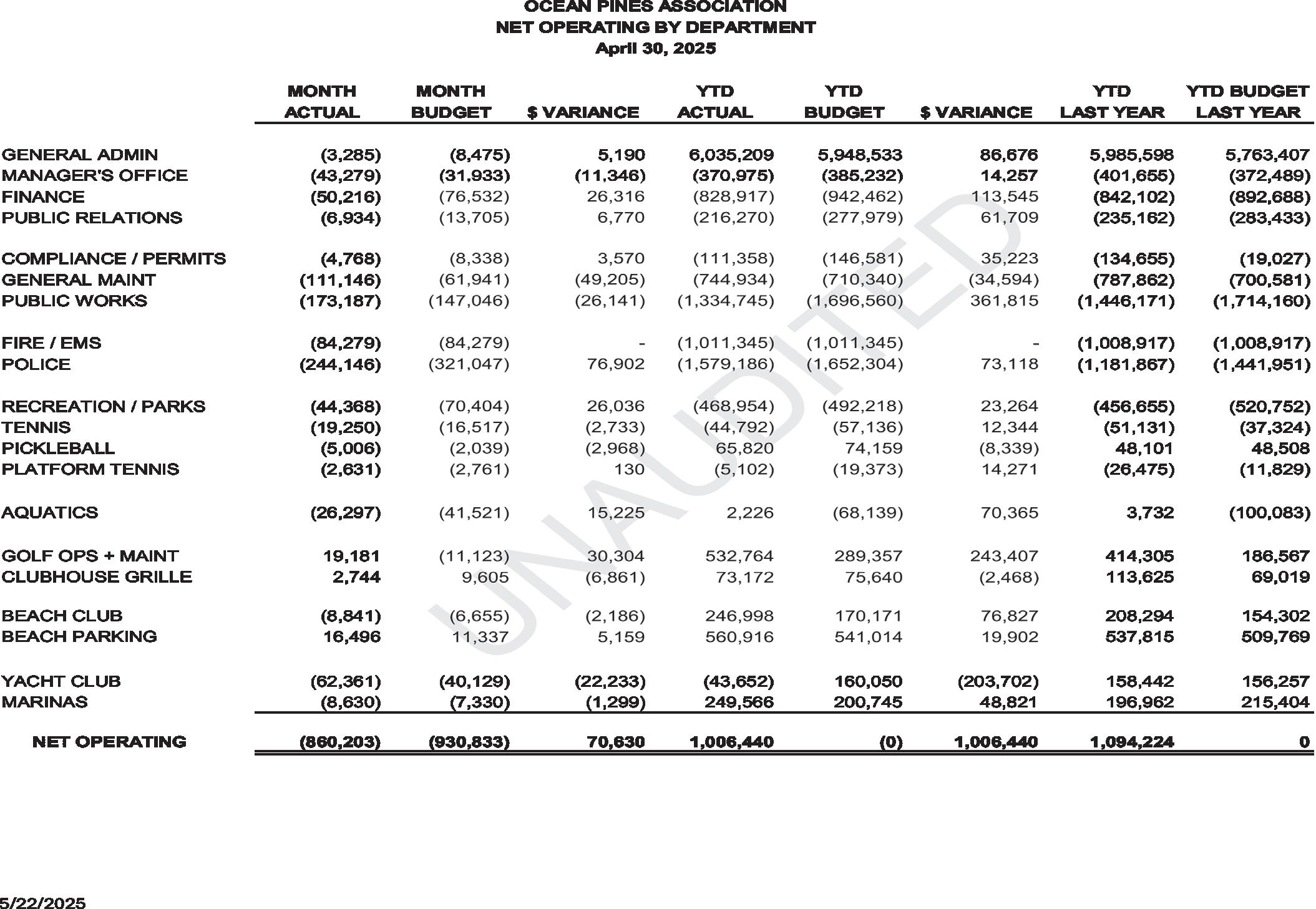
improved by $52,604 year-over-year. The Beach Club through April generated $246,998, ahead of budget by $76,827. In April, it lost $8,841, $2,186 under budget. Compared with last year’s April year-todate net of $208,294, there was a year-over-year improvement in the Beach Club net of $38,704.
Aquatics, despite trailing last year’s pace, is in the black by $2,226 through April, ending the year ahead of budget by $70,365. For the month, aquatics posted a loss of $26,297, which was $15,225 ahead of budget. Compared to a net of $3,732 last year through April, aquatics was off last year’s net by only $1,506.
Though not a high revenue earner for the OPA, the Clubhouse Grille consistently operates in the black. Through April, it had netted $73,172, under budget by $2,468. For the month, it earned $2,733, under budget by $6,861.
Through April of last year, the grille produced earnings of $113,625, so there was a year-over-year decrease in net of $40,453.
Racquet sports remain a modest profit center for the OPA in 2025. Year-to-date through April, pickleball netted $65,827, $8,300 under budget.
Platform tennis showed a loss for the year of $5,102, but that’s $14,271 ahead of budget. Tennis produced a $44,792 deficit, though that was $12,344 better than budget.
For the year, combined racquet sports ended in the black by $15,926, ahead of budget by $18,276.
Reserve funds: The OPA’s reserve fund balance through the end of April was $6.238 million, down from $6.76 million in March, $7.187 million in February, and $7.681 million in January. The replacement reserve as of April 30 was funded in the amount of $4.739 million, with bulkheads/waterways at $201,466, roads at $1.126 million, drainage at $167,913 and new capital at $3,842.
Balance sheet: As of April 30, the OPA had $47,703,663 in assets, compared to $46,960,789 at the same time in 2024.
The balance shows that. as of April 30, it has unallocated equity on hand of close to $3 million.
Viola calls this unallocated equity retained earnings. It’s the result of a consecutive series of years in which the OPA has produced healthy positive variances to budget.
These funds hsve been used to lower or stabilze the annual lot assessment.
Another rocky election contract season concluded last month with the drafting and signing of a three-year contract with MK Election Systems of Pittsburgh authorizing the vendor, who handled last year’s Board of Directors election, to manage this year’s balloting and the elections in 2026 and 2027.
But does it really? There’s fine print in the contract that gives the OPA Elections Committee and the Board a dignified and perfectly legal exit if it decides it would prefer to put the contract out to bid next year as it has in recent years, if nothing else to see if a qualified vendor can be had at a less expensive price without in anyway diminishing the fairness and accuracy of the vote count.
That the termination clause in the new contract gives the OPA the option of bidding out the election next year isn’t an act of disrespect directed at MK, which conducted last year’s actual vote count more or less flawlessly.
The company’s only significant glitch occurred with the important first step in the process, the printing and mailing of ballots to eligible OPA members.
The snafu occurred when the subcontractor hired by MK to do that failed to meet the OPA’s deadline, resulting in late ballots arriving in local and out-of-state mailboxes and a two-week delay in the annual meeting in which the results were to be certified.
ACE Printing and Mailing, the long-time election vendor for the OPA, rose to the occasion to print and mail the ballots, for which it received too little credit last summer.
The company’s willingness to bail out the OPA after losing the contract two years ago to a West Coast vendor, who lasted one year in the role, was a testament to the company’s professionalism.
This year’s vendor selection drama notwithstanding, ACE deserves to get another shot at the OPA’s business next year, despite the threeyear timeframe called for in the new MK contract.
As for the hybrid voting system in place last summer, MK proved it could handle online voting through a portal set up for that purpose and could process and count the paper ballots that many members still prefer.
The merging of two distinct ballot streams seems to have occurred without mishap, as did remote viewing of the vote count available for anyone to watch, an exercise akin to waiting for paint to dry. Adjudication of questionable ballots was also done with one slight, even amusing glitch -- the premature flashing on the screen of cumulative candidate tallies before adjudication occurred.
But with MK official Ken Masden presiding over adjudication in his Pittsburgh office that was live streamed to Board members at the Club-
house meeting room, other than the premature disclosure of election results that part of the process too was handled as well as it could have been.
In its response to this year’s request for proposals, MK asked for a multi-year contract and apparently insisted on it during contract negotiations with the Elections Committee and one would assume the active participation of OPA General Counsel Bruce Bright.
The company got its wish, but the termination clause gives the OPA the option of walking away from the three-year lock-in, which really is toothless and easily circumvented.
Indeed, the termination clause gives both the OPA and MK the right to terminate with notice 60 days prior to the start of election activity, which probably begins in June with the preparation, printing and mailing of ballots.
That means if the OPA wants to put the process out to bid next year, it can do so, provided that MK is given notice sometime in April if not sooner.
Sooner would be better actually. Note the fine print: There is no penalty for termination, nor even a reason that the OPA would need to give to MK for opting out. The opt-out option is truly for no cause that has to be disclosed.
Of course, the motivation for early termination should be fairly obvious. The OPA should still be interested in obtaining a good price for these services, and MK’s pricing just happens to be about twice that of the other finalist this year, ACE Printing and Mailing. It’s a not a good deal for the OPA financially, which isn’t to say there’s any reason at all to doubt MK’s competency in this summer’s election.
It was sad and unsettling when ACE took itself out of the running for this year’s contract, with the company’s Thom Gulyas, who had bailed out the OPA the previous summer when MK couldn’t deliver timely printing and mailing of ballots, doing so in a way highly critical of the Board and the OPA.
He contended that the Board, in a discussion leading up to a 3-3-1 deadlock in awarding this year’s contract, had materially changed the terms of the March request for proposals.
He took exception to being asked to supply a list of clients to whom his company had supplied election services. He also didn’t appreciate being asked to supply details of how he would be providing the electronic voting component of the OPA’s hybrid system.
While OPA attorney Bright subsequently provided a reasonable defense of the belated requests, the damage had been done. ACE had already opted out, and the Board was then faced with little or no choice but to negotiate a contract with MK for this year’s election.
Gulyas overreacted to a legititmate request for more information, but he has that right and
to decide who he wants to do business with.
Interestingly, some Board members have said that had Gulyas been willing to provide some details requested by the Board, especially about the e-voting component, ACE had at least a 5050 chance of winning the contract.
Be that as it may, let’s hope that no bridges have been burned despite this year’s ugly procurement process.
Holding onto to grudges benefits no one. Should the Elections Committee and Board opt to do an election RFP next year, after terminating the MK contract of course, the text of the RFP needs to be written in such a way that this year’s fiasco won’t recur. Want to know how prospective vendors intend to handle on-line voting?
Then ask for it in a way that won’t give rise to a desire for more information after the fact. The same is true for all other components of the process. It may be true that no prospective vendor has the in-house capability to handle all aspects of the process.
As subcontracting some components seems plausible in many if not all responses to RFPs, drafting a sufficiently detailed RFP shouldn’t require a degree in rocket science.
Meanwhile, though, the OPA has another election coming up, with the added spice of a referendum on a new Southside firehouse. Let’s see how MK performs, especially addressing last year’s snafu with printing and mailing of ballots. Even so, the presumption should be that the OPA put election management out to bid next year. ~ Tom Stauss

By CINDY HOFFMAN
Contributing Writer
Ginny Reister was a typical mom, looking for something for her sons to do during the summer months out of school. She decided on swimming, but there was no swim team in Ocean Pines. However, there was a swimming pool, so Reister took it upon herself to create a swim team. That was in 1975. This year, the Ocean Pines Swim Team, the Hammerheads. celebrates Reister and its 50th anniversary.
Reister was dedicated to the success of the swim team from 1975 until her death in 2020. She was not only the founder but the first coach of the team, according to Jennifer Wills, the Secretary on the Board of Directors for the OPST, who also got involved because of her son.
“My son discovered he loved swimming and wanted to learn more about it through Scouting and here we are,” Wills said. He joined the team four years ago.
The team started out swimming in the Sports Core Pool when it was still an outdoor pool. By the mid-1980s, the team started swimming at the Swim and Racquet Club pool.
In 2010, it became a year round team, with summer practices and meets occurring at the Swim & Racquet Club Pool while practices from September to May occur at the then enclosed Sports Core Pool.
Swimmers from age five to 18 can join the team. Year round swimmers total about 80 and the summer team is closer to 130 or more.
Generations of swimmers have come and gone and a number of them have come back again. Linsey Parker is the current President and she was a Hammerhead herself back in the 1980s.
Coach Andrew Gottfried swam with the Hammerheads for a year as well as Stephen Decatur High School and McDaniel College, competing as an NCAA Division III swimmer.
“Many Hammerheads return and bring their own children to become members of the team. Ocean Pines Swim Team has always been very family oriented and entire generations of families have committed themselves to OPST either as swimmers, parent volunteers, Board members, coaches and lifeguards,” Wills said.
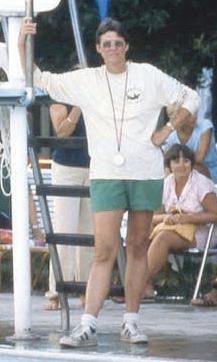
Frank Nanna, a former Hammerhead from age 10 to 17, has returned to coach the team after swimming for Stephen Decatur High School and earning the Iron Swimmer Award while training with the US Naval Academy’s summer swim team in 2015.
Coach Scott McIntire joined the team in August of 2024. He swam at Towson State University in the early ‘80s with founder Ginny Reister’s two sons and was part of the Ocean City Beach Patrol.
He had been coaching for 25 years and was expecting to take a hiatus when the team approached him.
“They blew me away. Their vision and my vision really worked great,” McIntire said.
McIntire has known the team for decades and has been friends with several of the coaches.
“I’ve had a front row seat,” as the team grew and evolved, from a summer team to a year round competitive team.
Some of the swimmers have gone far, from college swimming teams to qualifying for the Olympic Trials.
Dana Helmuth swam with OPST back in the 1980s under Ginny Reister and Jeff Smith back when they were just a summer team.
He swam twice in the Jr. Olympics, qualified for the Pan American Games in 1983 and the Olympic Trials for the 1988 Olympics but was in a car accident and broke his leg which ended his competitive swimming career, Wills said.
Daniel Karcheuski, another Hammerhead, attended USA Swimming Sectionals in Spring 2024. The team has several swimmers that currently qualified for Sectionals, are close to qualifying for Futures and are young enough that they still have years to go and time to achieve great heights.
OPST has become a community and family for many of its members.
“For the younger kids, it’s a great place to meet new friends with similar interests and to dip [a] foot into the kind of discipline that swimming requires,” Wills said.
“For the older kids, many of them swim together six days a week 49 weeks a year so they become very close and are most definitely each other’s support system through all of the highs and lows. They understand the discipline it takes to commit to competitive swimming and are truly each other’s biggest supporters and closest friends. Many of the older kids have been swimming together for 10 years so have definitely been through a lot together.”
“You will learn life lessons through swimming. Discipline, time management, academic excellence,” McIntire said.
He also noted the importance of learning to work as a team.
“My training is not easy. This team is tough, smart and resilient. They have grit, which is lacking in today’s youth. These kids are tough as nails,” he said.
Through swimming, team members learn to have success in the pool, having a life balance and honoring their family’s sacrifices and expectations.
The swim team family supports each other both in and out of the pool. McIntire has helped kids through death and divorce, even becoming a guardian for one boy.
“That kid still calls me dad and he is 23 years old. That is when it hits you that what we are doing is so important,” he said.
The swimmers also give back to the community through “OPST Gives Back,” created to help instill the importance of community service.
The team recently helped clean up after the Ocean Pines Kickoff event and sponsored a family through Diakonia over Christmas to provide them with presents.


The roster of coaches the team attracts is impressive. “One of the things that makes swimming different from some of the other local sports is that the nature of the sport requires that we have highly skilled and trained and certified coaches.
The coaches are not parent volunteers but are hired employees. We are fortunate to currently have quite a few parents of swimmers on our team that come from the world of NCAA college competitive swimming and have the knowledge and experience required,” Wills said.
“Swimming is a sport that builds on itself. Our youngest pups start in very small groups with the instructor right in the pool with them and build up to much larger groups with several swimmers in a lane together. [They] start with only one or two short half hour sessions a week and gradually build up to the two hours six days a week 49 weeks a year practice schedule.”
Parents are heavily involved in the team. For every home meet, the team needs about 60 people, not including the coaches and away meets need about 30 volunteers.
Therefore, each family is required to volunteer a minimum of five service hours and at every meet a swimmer attends. Jobs include timers, announcers, referees and judges as well as concession and apparel sales.
In recognition of this dedication, the team presents the Ginny Reister Award to a parent who exhibits a deep-seated desire for the team’s success through volunteerism, leadership and showing that they can be a “jack of all trades.”
The team is a non-profit. Dues the families pay cover only part of the money required to cover all of the operational costs of the team.
Sponsors and other donations cover the remaining costs.
“Costs definitely go up as you move further
along in your studies. Because we have to travel to meets during the year, families incur travel/ hotel costs associated with that. Really not unlike any other travel sport,” Wills said.
While it does not currently provide full scholarships for those in need, it does provide some small scholarships to the high school seniors that swim with the team and several $1000 scholarships are awarded each year to high school seniors from the Delmarva Swim Association.
Sponsors and donations are incredibly vital to the team in order to help keep costs at a reasonable level for families, according to Wills.
There are a lot of costs associated with swimming: pool rental, paid coaches, travel, insurance, equipment, and membership dues only cover a portion.
Anyone willing to sponsor or donate to the team can check out the “Support and Giving” tab on the website: www.opsthammerheads.org

Determines that plaintiffs Weslowski, Malstrom and Borrelli had no standing to sue because they were not parties to the 2012 Settlement Agreement
By TOM STAUSS Publisher
The legal challenge to the 2024 Board of Directors election by three candidates who were not announced as winners at last November’s annual meeting of the Captain’s Cove association has been decided, and not in a way that the plaintiffs had been hoping for.
In a May 22 notice to the attorneys who represented their clients in an April 16 hearing before Accomack County Circuit Court Judge Lynwood Lewis, the judge said the candidates lacked standing to sue and that he was sustaining the defendants’ demurrer claims, essentially saying the plaintiffs had no legal basis for challenging the election results.
Plaintiffs in the legal challenge are Cove residents Virginia Weslowski, Catherine Malstrom and Patricia Borrelli, all active members of the Concerned Citizens of Captain’s Cove and candidates in the 2024 election.
Their announced vote totals were less less than those received by the five announced victors, Michael Glick, James Silfee, Roger Holland, John Costello and alternate director Tim Hearn.
Along with Captain’s Cove Golf and Yacht Club, the Cove’s property owners association, all five were named as defendants in the suit heard by Judge Lewis. CCG Note, the Cove’s declarant/developer, was also a named defendant.
After apologizing for a delay in
issuing his ruling, Judge Lewis said it had occurred to him that “the threshold inquiry goes to the issue of the plaintiffs’ standing raised in both defendants’ [CCGYC and CCG Note] demurrers. The Court finds that the plaintiffs were not parties to the 2012 Settlement Agreement and therefore do not have standing to bring an action based on the agreement.”
The signatories to the 2012 agreement were CCG Note, the Captain’s Cove POA, and Tim Hearn. Among its many provisions was guidance on the declarant’s ability to cast votes in the Cove’s annual Board election, either on a one vote per lot owned basis or a three to one basis when CCGYC operations dip into a deficit.
Judge Lewis also ruled against an 11th hour attempt to bring 1,100 or so property owners who voted for the plaintiffs into the case as plaintiffs. He said he was not persuaded by the argument presented by the plaintiffs’ attorney, Zachary Handlin, noting that it was not included in the initial filing.
Judge Lewis written statement to the attorneys does not constitute a court order. He asked the defendants’ attorneys, Alison Duffy for the association and Daniel Berger for CCG Note, to draft a court order for his review and signature. Handlin presumably will have an opportunity to review it before it’s signed by the judge.
It’s often the case that a judge asks the prevailing attorneys to draft the formal court order. Once it’s signed
by the judge, the losing side in a case can appeal to the intermediate Virginia Court of Appeals.
Judge Lewis’ statement said that since plaintiffs’ standing to sue was a “threshold inquiry” in which he ruled against them, various other arguments made during the April 16 hearing “become moot for now.”
That seemed to suggest these other arguments could be raised again if the appeals court determines that Judge Lewis was incorrect in denying the plaintiffs’ standing to seek a legal review of the election results.
The April 16 hearing lasted about two hours, with both sides given ample opportunity to make their arguments, many of which were made in the initial filing by the plaintiffs and in the defendant’s responses, extensively covered in the February, March and April editions of the Cove Currents.
At the conclusion to the hearing, Handlin, the lawyer for the plaintiffs. advised that he may need to amend his filing and ask for a 90day extension if the judge rules against one of the attorney’s “key” arguments.
Much of the hearing revolved around the defendants’ demurrer defense, which essentially is an argument to dismiss a case in its entirety, with prejudice, contending that even if the facts in the complaint are true, there’s no legal basis for the claim.
The judge also heard competing arguments on the defendants’ plea in bar defense that seeks to com-
pletely and permanently defeat the plaintiffs’ case, either by denying the facts or alleging a reason why the case should not proceed.
Lewis made it clear he was not going to rule on either.
Berger opened his remarks on the plea in bar defense by asserting that the plaintiffs are not parties to the 2012 Settlement Agreement that is a document that contains details about the CCG Note’s right to cast ballots in Board elections.
He argued that the plaintiffs lack standing to challenge the agreement because of the statute of limitations that requires a more timely filing.
“We are now 13 years after the fact,” he said.
Regarding the plaintiffs’ argument that the declarant and the Cove association have breached the 2012 agreement, Berger contended that the elections in the Cove have been run “in exactly the same manner” every year since the agreement was signed.
If there was a breach of the agreement with regards to the handling of elections or the interpretation of the clear language of the Agreement, it is well past the period to object to any breach, he said.
He argued that that the mere fact that the names on the ballot have changed do not introduce “a time period for re-setting the clock.”
Handlin framed his clients’ legal challenge as a cause of action issue, that the election was an ‘action’ and did not involve a contract dispute.
He aruged that a cause of action lawsuit moves forward automatically and that each election in the Cove is a new action and that therefore the statute of limitations does not apply.
Berger responded that the dispute does indeed involve the interpretation of the 2012 agreement and that no breach has occurred as the election process has remained fixed.
He contended that the plaintiff’s challenge is against the election process and that CCG Note’s rights to
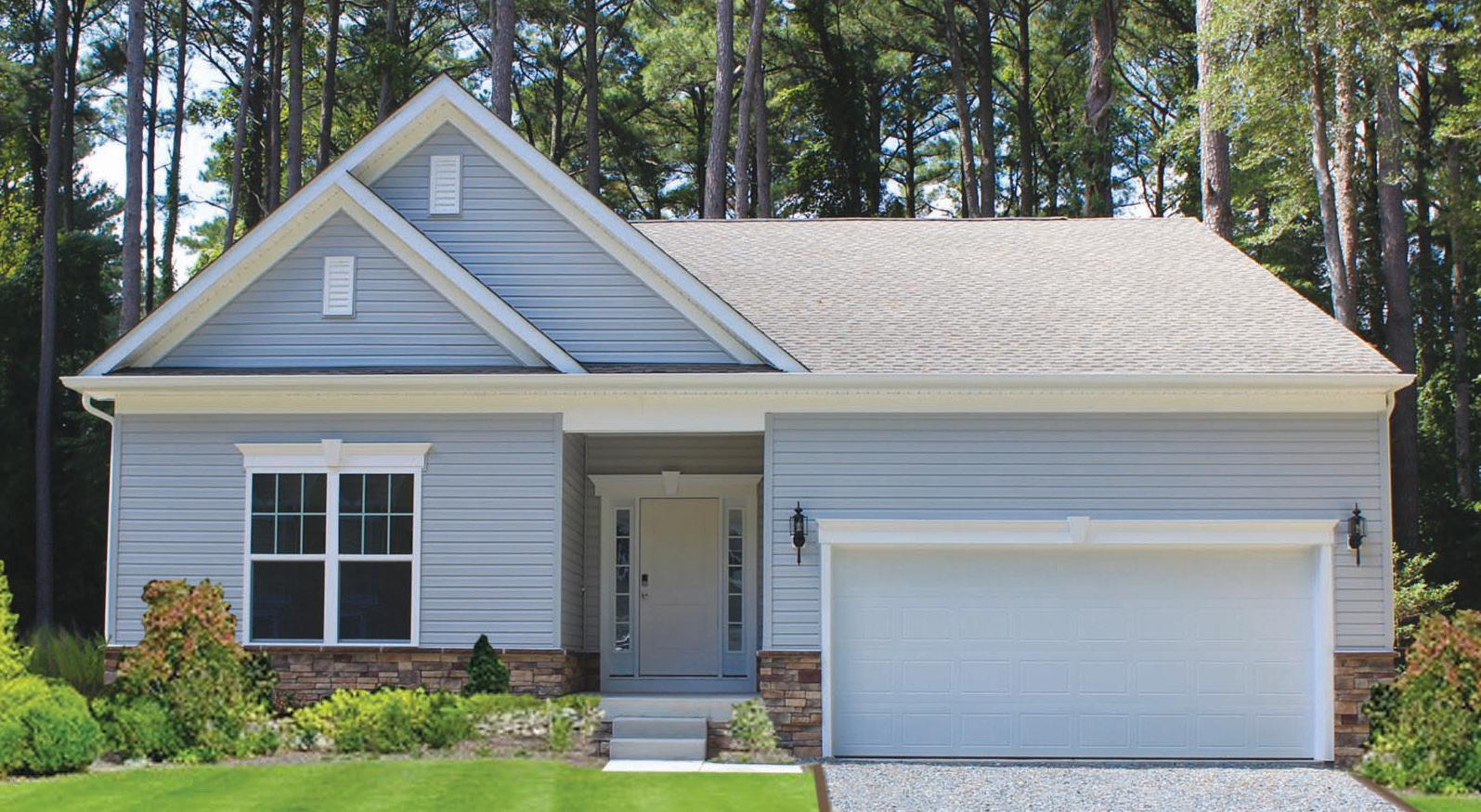
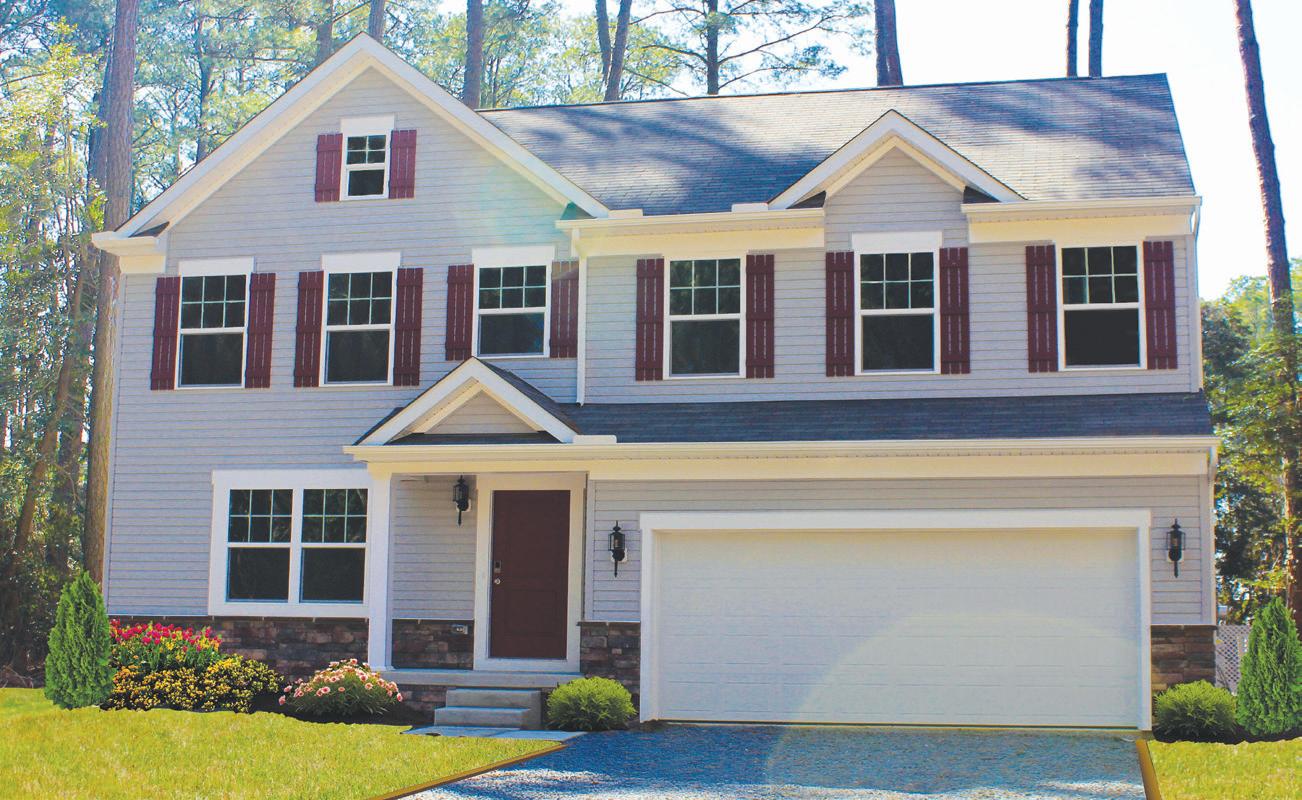





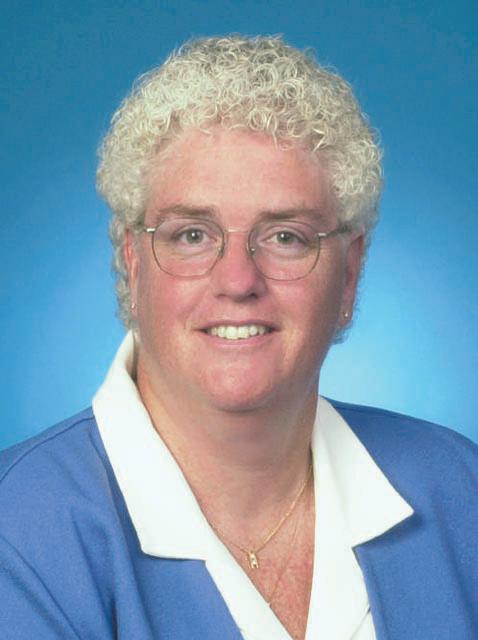



Election case
From Page 44
participate in that process were established in the agreement.
Indeed, that involvement is also spelled in other CCGYC governing documents, he has said.
Judge Lewis said he would rule on the competing arguments after reviewing cases cited by the attorneys into their written briefs.
The hearing then shifted to the demurrer defense, with Hurley making the argument that the 2012 agreement conferred three to one voting rights to the declarant under certain conditions and that, contrary to a goal of the plaintiffs, there is no provision for independent oversight of the agreement by a third party.
She also pushed back on the plaintiff’s argument that the Cove Board is effectively controlled by CCG Note because the declarant voted for candidates other than the three acknowledged declarant members on the Board.
She said that the plaintiffs lack standing to challenge the agreement but even if they did, there are only three declarant members on the Board and that voting for other candidates does not constitute control of the Board by CCG Note.
She said that as the plaintiffs aren’t parties to the agreement, they can’t claim violations of it, including the interpretation of language pertaining to the CCG Note’s three to one voting rights.
She also reminded the court that the plaintiffs have admitted in documents filed with the court that they are not aware of any breach of contract.
She also argued that even if the court were to rule that CCG Note had no right to cast three votes for each of the lots in Captain’s Cove in the 2014 election, it would not have mattered.
“They lost on a one to one basis, so the issue is immaterial,” she said.
She also countered the plaintiffs’ argument that a request for a members’ list had been denied, when in fact had been delivered after the initial denial.
As for the plaintiff’s request that the Court give designated association members authority to oversee the election process, she said there is no authority that would give the Court that kind of power.
There is no basis in law for such relief, she said.
Hurley pushed back against the plaintiffs’ request for injunctive re-
lief against future Board conduct.
She argued there is no “fact” of future misconduct that a vague request for an “unidentified reward” violates the law’s requirement for specificity.
She concluded her remarks by telling the court that was no basis for naming Cove directors in the suit.
She said no specific relief can come from any individual directors and that the Court should remove them as defendants, which would leave CCG Note and the association as the only defendants.
The hearing then took a somewhat hard-to-understand detour into an issue not raised in the initial filings by the plaintiffs.
It was introduced by Handlin in an April 9 filing with the Court.
The defendants’ attorneys reportedly did not receive a copy via fax until two days prior to the April 16 hearing, the Currents has been told.
Nonetheless, the issue of a third-party beneficiary in the case arose during the hearing.
It appears that the third-party beneficiary according to Handlin would be association members.
He said they are a key element to his case.
Berger said any attempt to make association members a party to the case would require the filing of what he called a derivative action, which hadn’t been done as of April 16, and that the attempt to add association members as third-party beneficiaries to the 2012 agreement is baseless.
The agreement clearly identifies the parties of interest and they don’t include association members, he said.
Berger told the Court that declarants have always enjoyed three to one voting rights since the inception of CCGYC and that the 2012 agreement limited the conditions under which they would be used.
“And what keeps getting overlooked within the agreement is that the declarant will always retain at least a 1:1 voting right as called out in the last sentence. Elections don’t work that you can only vote for three directors and then you can’t vote again. Just because you vote for someone that does not mean you control them,” he said.
Handlin tried to explain his reasoning for introducing the third-party beneficiary issue.
Calling it a key element to his case, he said the third party beneficiary to a successful outcome of the case would be the 1,000-plus association members who did not vote for the candidates supported by CCG Note in the last election.
Handlin said there are two political groups active in Captain’s Cove, the developer and 20 association members, and the 1,000 members who don’t vote for candidates supported by CCG Note.
With this division within the Cove, the 1000 members becomes the implied third party beneficial group, according to Handlin.
As named parties in the 2012 agreement, the Cove association and the declarant apparently are the first two parties under Handlin’s reasoning.
He told the judge that the Court has the discretion to determine an equitable resolution to the case that rejects the defendant’s demurrer argument and upholds the interests of the 1,000 members.
The Court may order any relief it deems appropriate, he said.
Handlin then contended that Hearn, elected as an alternate director, is affiliated with CCG Note and is a fourth CCG Note director, a violation of the 2012 agreement.
In response to Handlin’s third party beneficiary argument, Hurley said the 2012 agreement was developed for an expressed purpose and did not reference association members but only the association Board and the declarant.
She said that any relief given the Court to the plaintiffs must be grounded in law and supported by facts, again arguing that Handlin’s proposed relief was not “properly claimed,” and that the plaintiffs were not parties to the agreement and have no basis for interpreting language within it or challening it in court.
Berger challenged Handlin’s contention that Hearn is a fourth CCG Note director.
Hearn is not a director but an alternate who should not be counted as a fourth CCG Note director, Berger said.
He also argued that Hearn is a lot owner in Captain’s Cove and has a right to run for office.
He argued that if Handlin wants to add association members to the case, the derivative action process must be used.
Handlin said that if the judge rules in favor of the defendants on that point, he may need to file an amended suit and request a 90-day extension.
That’s when the judge said he would make no rulings that day but would do so in writing at a later time.


Panel’s chair suggests remedies are local and in the courts; Birckhead, Baumgartner trade competing narratives on whether developer influence over Cove governance is negative or positive
By ROTA L. KNOTT
Contributing Writer
At a May 22 Virginia Housing Commission work group session, residents from Captain’s Cove brought forward longstanding concerns about developer influence -- they call it control -that has persisted for decades. The session, chaired by Delegate David Bulova, revealed gaps in Virginia’s laws that some legislators may believe leave homeowners across the Commonwealth vulnerable.
The May meeting was set up through the office of State Senator Bill DeSteph, whose Virginia Beachbased district also includes the Eastern Shore of Virginia. DeSteph did not attend the meeting, his office explaining he had prior commitments.
The work group, part of a larger commission that studies housing issues and advises the General Assembly, heard testimony from both residents of the Captain’s Cove Golf and Yacht Club community and a lawyer representing the development’s current declarant, CCG Note LLC.
While the focus began on a single community, the conversation quickly turned toward the broader implications for housing policy across Virginia.
Bulova opened the session by explaining the group’s role in examining housing issues and recommending changes to state law.
The work group doesn’t litigate individual disputes, he said. It’s job is to understand whether the legal framework adequately protects homeowners and ensures fair transitions of control in common-interest communities, he said.
As the meeting concluded, Bulova said the specific issues raised by the residents would be best resolved locally and in the courts, perhaps suggesting a legislative remedy specifically applicable to Captain’s Cove would be difficult to achieve.
According to some CCGYC officials who attended or remotely watched the meeting, legislation that might be proposed and enact-
ed for Virginia going forward for legal reasons would probably have to grandfather in existing situations, especially if these conditions are set forth in governing documents. New legislation would govern new communities as they’re established but would not apply retroactively to those already in existence, they contend.
The CCCC fervently disagree and are likely to continue to press for a legislative remedy that would apply to Captain’s Cove.
Bulova said he had initially assumed that state law provided clear guidance on the transition of control from developers to homeowners but discovered through this case that Virginia lacks specific timeframes and requirements for such transitions.
“This is an opportunity to learn from a specific case that clearly has broader significance,” he said.
Delegate Elizabeth Palen offered context, explaining that a declarant is typically the developer of a planned community who retains significant power until a transition occurs, often defined by either a specific number of units sold or a set number of years.
Many other states, like Pennsylvania, have clear statutory timelines that determine when a declarant must turn control over to the homeowners, Palen said. But Virginia does not.
Teresa Birckhead, president of the Concerned Citizens of Captain’s Cove, spoke on behalf of hundreds of community members.
Chosen by her neighbors to represent their concerns, Birckhead delivered a statement outlining years of what she described as manipulation and control of the CCGYC Board of Directors by Cove property owner Tim Hearn and his associated companies, as well as current developer/ declarant CCG Note.
The property owners were not appearing before the work group just because of minor complaints, she said. They were there because she said the community is being
mismanaged under a system that has allowed developers to dominate every aspect of the owners’ lives for decades.
Birckhead said that Captain’s Cove was originally marketed as a luxury resort community, complete with water access, recreational amenities, and modern infrastructure. But those promises, she said, have largely gone unfulfilled.
She cited what she regards as deteriorating roads, incomplete utility systems, rising homeowner dues, and a lack of transparency.
Despite the number of lots sold, control has never truly shifted to the homeowners, she said.
Currently, the declarant through CCG Note and affiliated companies own about 1,200 lots in Captain’s Cove, with the right under community governing documents to cast votes for directors on a three per one basis in annual elections, with three seats on the Board reserved for those affiliated with the declarant/developer.
According to the 2012 settlement agreement, those lots can only be voted three to one whenever the association has incurred an operating deficit the prior year. The three to one rights were exercised in the 2024 Board election.
She also described legal and financial maneuvers that allowed the declarant to regain control of community assets following a previous developer’s bankruptcy.
She alleged that the 2012 settlement agreement allowing the transfer of several common areas back to the declarant.
That agreement, she argued, created a system where homeowners were responsible for funding operations while having no meaningful decision-making power.
Birckhead said that many residents struggle with high dues, ranging from $2,000 to $2,300 annually, especially given what she said were limited services and poor infrastructure.
For many people, that’s the equivalent of two house payments, she
said. She claimed that the developer repeatedly blamed unpaid dues by hundreds of property owners for the financial strain, but a significant number of the delinquencies are from deceased owners, not negligent ones.
Over 200 of the 500 delinquent accounts belong to people who have died, she said.
The community’s frustrations extend beyond finances. Birckhead alleged that those who criticize the developer face retaliation, including removal from community committees.
She said that despite the Board voting to protect member-owned lots from erosion using bulkheads, the developer has failed to provide the same protections for his own lots, which continue to erode.
“None of them signed any document that requires them to be the developer,” she said of property owners.
She said they bought homes in a planned community, expecting that the developer would complete the roads, install the infrastructure, and eventually turn things over. Now they’re being told the community is grandfathered in, and that none of the state’s subdivision codes apply.
Residents have spent over $400,000 in litigation attempting to address the situation, she said, failing to mention that they’ve been rebuffed at every step in the process to date and in one case told they will have to cover the legal expenses of the Cove association.
More than 1,600 members have signed on in support of reform, she said, and they want intervention from the Virginia legislature.
“We know the the legislative intent was not to be a buyer gets screwed state,” she said.
In response, Mark Baumgartner, an attorney with Pender and Coward representing CCG Note, acknowledged the community’s concerns but emphasized the historical and financial complexities involved.
He said there was insufficient time to answer the litany of complaints in Birckhead’s testimony but that contrary to her assertion, developers have had positive impacts including bailing out the original utility company that had declared bankruptcy but was still required by the state to operate.
He explained that Captain’s Cove was first platted in 1969, a time when subdivision ordinances did not

From Page 48 require paved roads or comprehensive infrastructure.
By the early 2000s, he said, only the main roads and those near the waterfront had been paved, and the community’s water and wastewater facilities were in poor condition.
The roads had been conveyed to the association in the 1970s by the original developer, with responsibility for maintaining and building new
roads shifting to the association.
When the previous developer ran out of resources, the state issued an order requiring that the water and wastewater systems to continue operating, even if no money was available to do so, Baumgartner said.
That’s when CCG Note stepped in to stabilize the situation, buying the former developer’s Cove assets in bankruptcy court.
He noted that the developer has invested in restoring the water and
wastewater systems, which were eventually sold to Aqua Virginia, a state-regulated utility company that now manages them.
He also said that the Cove Board currently consists of eight members, including three representing the declarant and four from the community, and that, to his knowledge, the declarant’s voting rights have never changed the results of an election. He disputed the contention that this arrangement means

the developer controls the Board.
Baumgartner defended the developer’s need for continued influence over Cove governance, arguing that no outside developer would have taken on such a troubled project without the authority to manage infrastructure and guide redevelopment.
He said that the Cove directors with support from the declarant have taken steps to make lots more buildable by offering a program where residents in good standing can trade unbuildable lots for improved lots with infrastructure access.
While one major national homebuilder pulled out in 2012, Baumgartner said another is now showing interest in acquiring lots. If people own lots where they can actually build, they’re more likely to pay dues, build homes, and invest in the community, he said.
Andrew Clark of the Home Builders Association of Virginia pressed for a clearer long-term vision.
He asked what the plan is for the next five, ten, or 20 years. “This seems like a pretty dire emergency,” he said asking what’s the path forward?
Baumgartner said CCG Note is working on a strategy that involves both infrastructure upgrades and attracting new development.
But he acknowledged that the situation is challenging and may require continued coordination between the association, developer, and local officials.
In closing, Bulova reiterated that while the Housing Commission cannot resolve individual disputes, it can help shape state law.
“This issue clearly has a very long history,” he said, adding that most such issues are better dealt with at the local level.
Still, he said, it presents an opportunity to determine whether Virginia’s current legal framework is sufficient.
Bulova proposed forming a small task force of stakeholders to explore potential legislative reforms.
He suggested bringing together representatives from the Virginia Municipal League (VML), the Virginia Association of Counties (VACO), the Community Associations Institute, Delegate Carrie Coyner, and leaders from the homebuilding and development sectors. Andrew Clark was invited to take a leadership role in convening the group.
June 27, 2025, 10 A.M.
To be held at the Marina Club in Captain’s Cove Subdivision
The following properties will be auctioned:
Section/Lot:1-0569, Captain’s Cove
Tax Map No. 005A10100056900
Assessed Value: $1,300.00
Section/Lot:1-0665, Captain’s Cove
Tax Map No. 005A10100066500
Assessed Value: $11,400.00
Section/Lot:1-0771, Captain’s Cove
Tax Map No. 005A10100077100
Assessed Value: n/a
Section/Lot:1-0820, Captain’s Cove
Tax Map No. 005A10100082000
Assessed Value: $4,000.00
Section/Lot:1-0834, Captain’s Cove
Tax Map No. 005A10100083400
Assessed Value: $4,000.00
Section/Lot:1-0844, Captain’s Cove
Tax Map No. 005A10100084400
Assessed Value: $20,000.00
Section/Lot:1-0862, Captain’s Cove
Tax Map No. 005A10100086200
Assessed Value: $5,000.00
Section/Lot:1-0869, Captain’s Cove
Tax Map No. 005A10100086900
Assessed Value: $5,000.00
Section/Lot:1-0878, Captain’s Cove
Tax Map No. 005A10100087800
Assessed Value: $4,000.00
Section/Lot:1-0890, Captain’s Cove
Tax Map No. 005A10100089000
Assessed Value: $4,000.00
Section/Lot:1-0901, Captain’s Cove
Tax Map No. 005A10100090100
Assessed Value: $4,000.00
Section/Lot:1-1060, Captain’s Cove
Tax Map No. 005A10100106000
Assessed Value: $4,000.00
Section/Lot:1-1068, Captain’s Cove
Tax Map No. 005A10100106800
Assessed Value: $4,000.00
Section/Lot:1-1077, Captain’s Cove
Tax Map No. 005A10100107700
Assessed Value: $4,000.00
Section/Lot:1-1104, Captain’s Cove
Tax Map No. 005A10100110400
Assessed Value: $5,000.00
Section/Lot:1-1550, Captain’s Cove
Tax Map No. 005A10100155000
Assessed Value: $4,000.00
Section/Lot:2-0085, Captain’s Cove
Tax Map No. 005A20100008500
Assessed Value: $5,000.00
Section/Lot:2-0097, Captain’s Cove
Tax Map No. 005A20100009700
Assessed Value: $5,000.00
Section/Lot:2-0102, Captain’s Cove
Tax Map No. 005A20100010200
Assessed Value: $5,000.00
Section/Lot:2-0103, Captain’s Cove
Tax Map No. 005A20100010300
Assessed Value: $5,000.00
Section/Lot:2-0234, Captain’s Cove
Tax Map No. 005A20100023400
Assessed Value: $5,000.00
Section/Lot:2-0239, Captain’s Cove
Tax Map No. 005A20100023900
Assessed Value: $5,000.00
Section/Lot:2-0277, Captain’s Cove
Tax Map No. 005A20100027700
Assessed Value: $5,000.00
Section/Lot:2-0360, Captain’s Cove
Tax Map No. 005A20100036000
Assessed Value: $20,000.00
Section/Lot:2-2508, Captain’s Cove
Tax Map No. 005A20100250800
Assessed Value: $5,000.00
Section/Lot:3-1587, Captain’s Cove
Tax Map No. 005A30100158700
Assessed Value: $4,000.00
Section/Lot:3-1655, Captain’s Cove
Tax Map No. 005A30100165500
Assessed Value: $5,000
Section/Lot:3-1711, Captain’s Cove
Tax Map No. 005A30100171100
Assessed Value: $5,000.00
Section/Lot:3-1755, Captain’s Cove
Tax Map No. 005A30100175500
Assessed Value: $4,000.00
Section/Lot:3-1798, Captain’s Cove
Tax Map No. 005A30100179800
Assessed Value: $4,000.00
Section/Lot:3-1511A, Captain’s Cove
Tax Map No. 005A302001511A0
Assessed Value: $4,000.00
Section/Lot:3-1523A, Captain’s Cove
Tax Map No. 005A302001523A0
Assessed Value: $4,000.00
Section/Lot:3-1529A, Captain’s Cove
Tax Map No. 005A302001529A0
Assessed Value: $4,000.00
Section/Lot:3-1575A, Captain’s Cove
Tax Map No. 005A302001575A0
Assessed Value: $4,000.00
Section/Lot:3-1576A, Captain’s Cove
Tax Map No. 005A302001576A0
Assessed Value: $4,000.00
Section/Lot:3-1577A, Captain’s Cove
Tax Map No. 005A302001577A0
Assessed Value: $4,000.00
Section/Lot:4-1854, Captain’s Cove
Tax Map No. 005A40100185400
Assessed Value: $5,000.00
Section/Lot:4-1882, Captain’s Cove
Tax Map No. 005A40100188200
Assessed Value: $5,000.00
Section/Lot:4-1888, Captain’s Cove
Tax Map No. 005A40100188800
Assessed Value: $5,000.00
Section/Lot:4-1896, Captain’s Cove
Tax Map No. 005A40100189600
Assessed Value: $5,000.00
Section/Lot:4-1898, Captain’s Cove
Tax Map No. 005A40100189800
Assessed Value: $5,000.00
Section/Lot:4-1929, Captain’s Cove
Tax Map No. 005A40100192900
Assessed Value: $5,000.00
Section/Lot:4-2015, Captain’s Cove
Tax Map No. 005A40100201500
Assessed Value: $5,000.00
Section/Lot:4-2117, Captain’s Cove
Tax Map No. 005A40100211700
Assessed Value: $5,000.00
Section/Lot:4-2124, Captain’s Cove
Tax Map No. 005A40100212400
Assessed Value: $5,000.00
Section/Lot:4-2242, Captain’s Cove
Tax Map No. 005A40100224200
Assessed Value: $5,000.00
Section/Lot:4-2250, Captain’s Cove Tax Map No. 005A40100225000
Assessed Value: $5,000.00
Section/Lot:4-2253, Captain’s Cove Tax Map No. 005A40100225300
Assessed Value: $5,000.00
Section/Lot:4-2262, Captain’s Cove Tax Map No. 005A40100226200
Assessed Value: $5,000.00
Section/Lot:4-2268, Captain’s Cove Tax Map No. 005A40100226800
Assessed Value: $5,000.00
Section/Lot:8-0047, Captain’s Cove Tax Map No. 005A50300004700
Assessed Value: $5,000.00
Section/Lot:9-0066, Captain’s Cove Tax Map No. 005A50400006600
Assessed Value: $5,000.00
TERMS: Minimum Bids will be announced prior to the start of the auction on the date of sale. Announcements made at auction time take precedence over any print, electronic, or verbal information, including but not limited to the Minimum Bid. Successful bidder will be required to deposit with Trustee a deposit (non-refundable) in an amount equal to the lesser of $5,000 or 10% of successful bid in cash or certified funds at time of sale, with the closing to occur within thirty days of the date of said sale. Written one-price bids will be accepted for any of the properties pursuant to the terms set forth in Va. Code § 55.1-1833. There is no warranty relating to right, title, interest, or the like in this disposition. Property is being sold pursuant to Va. Code § 55.1-1833, and title will be conveyed pursuant to statute and subject to all liens or encumbrances as provided in said statute. All information for review by appointment only. Notwithstanding the Minimum Bids announced at the time of sale, the Trustee reserves the right to accept and/or reject all offers. Time is of the essence. Other conditions may be announced at the sale.
TRUSTEE: Pender & Coward, P.C., 222 Central Park Ave., Virginia Beach, VA Phone: (757) 490-6261
Email: capcove@pendercoward.com
By TOM STAUSS Publisher
What appeared on the agenda to be a relatively non-controversial item, an application form for Cove as-
sociation members to sign up for a committee to look at the possibility of turning over responsibility for dredging privately owned canals to their owners, turned out to be a little more contentious at the May 27
Board of Directors meeting.
In the end, the Board vote to adopt the application from and to proceed with creating the committee.
On a motion by alternative Director Tim Hearn, who was voting on

motions because of the absence of another director, the Board limited the committee’s purview to the issue of dredging privately owned canals only.
Excluded from the committee’s scope will be dredging by the association of common area canals at the Marina Club marina and at the end of the canals that aren’t privately owned. Common area canals comprise about five percent of the canals in Captain’s Cove, according to association President Mark Majerus.
He opened the discussion for member comment, and these comments mostly concerned whether the Board should even be considering turning over responsibility for dredging to individual canal-front homeowners.
There appears to be a faction of the Cove membership that is reluctant to have canal-front homeowners take on that responsibility, despite certain advantages, including the elimination of the waterfront assessment and waterfront reserve.
But there appears to be a majority of directors already in favor of the idea conceptually.
The agenda item to adopt an application form was not meant to decide the issue. In the end, Majerus said he didn’t want to get bogged down in a debate over the merits, which he said the committee was formed to deal with and make recommendations to the Board on how to handle.
Director Dave Felt joined the critics of the prospective turn-over during discussion, but he voted for the amended motion to adopt the application form.
In a related matter, Majerus during the May 27 meeting noted that the recently repaired dredge boat may need to be replaced soon or simply retired, even though its work load might diminish if the association decides to get out of the business of dredging privately owned canals.
The Board voted unanimously to task the Property Management Team to investigate costs associated with the purchase of a smaller
From Page 52
dredge boat that could handle a diminished work load of common area dredging only. The Board also is interested in obtaining an estimate on the trade-in value of the older boat and whether it has resale value, and if so how much it might sell for. If the boat is retired and not replaced, the association could decide to hire a private contractor to handle common area dredging. The PMT has been asked to come up with costs attached to all options so the Board can compare.
Pender and Coward, the Cove association’s law firm, will host a foreclosure sale of lots that are in arrears in paying annual dues and interest at the Marina Club on June 27, beginning at 10 a.m.
The auction was unanimously approved by the Board at its May 27 meeting
Majerus said as of the May 27 meeting there were 74 lots on the list of properties to be sold, although he said it was likely that number will decline as some members opt to clear their balances due.
Majerus said there will be two or three more foreclosure sales this year.
The actual effect of the approved motion means the association can bid on lots and protect its potential ownership interest, eventually acquiring free and clear title. This in turn reduces the number of lots that are delinquent in paying dues, which has a beneficial effect on the Cove’s annual budget.
The Board unanimously voted to accept an offer to sell lot 70 in Sec-
tion 1 for a price of $20,000, netting the association $18,000 after paying a commission to Realtor Cindy Welsh and other fees.
The purchaser is the owner of a lot across the street on Mutiny Drive.
The Board unanimously approved a modified noise rule that closely aligns Captain’s Cove with county regulations.
While much of the language in the current noise rule is retained,


From Page 53
new language has been added that says the erection, excavation, demolition, alteration or repair of “any building or other improvement creating a loud or disturbing noise” is prohibited all day Sunday.
Quiet hours in county law are defined as 9 p.m. to 7 a.m. seven days a week and all day Sunday.
The same is true of Captain’s Cove with the new noise rule.
With the recent completion of wetlands delineation in Captain’s Cove by the U.S. Army Corps of Engineers, planning for prospective road work on three streets in the Cove,
Seaview Street, Starboard Street and Mutiny Drive, can proceed. The Board unanimously authorized the Property Management Team to proceed with planning, which doesn’t necessarily mean road construction will be authorized.
As for Starboard Street, the Board is looking for an update on “where we’re at,” according to Majerus. As for Mutiny, the objective is somewhat more definitive. The Board would like to see plans to finish Mutiny Drive and complete all the roads in Section 3, Majerus said.
Seaview Street overlooks Chincoteague Bay and is currently a dirt road. The Board authorized the PMT to re-engage a general contractor Manager to determine what is required to complete the permiting
process, bid preparation package and to scope the anticipated cost of the project based on the existing McCrone engineering plans.
Previous plans called for $1.2 million in road construction, with plans held up because of permitting issues.
In 2023, the Board rejected a proposal by a developer to purchase two lots that border the street for $20,000 each. Directors concluded when this street is finally built out, lot values will be much higher.
Put off by a bid of several hundreds of thousands of dollars to place an outfall pipe under Blackbeard Road to help homeowners plagued by poor canal water qual-
ity, Majerus said “we’re rescoping” the project to reduce cost and a new request for proposals was to be sent out on the day of the Board meeting. The pipe would empty out into the Chincoteague Bay.
The expectation is the that the Property Management Team will come back to the Board with a more affordable project for approval.
In a 6-0-1 vote with Pat Pelino abstaining, the Board elected her Board secretary, a role she has been filling for more than ten years.
A special meeting of the membership has been scheduled for the

















Starting At







Postponed fom the March Board meeting, the vote for some relatively minor tweaks to the regulations sailed through with litte debate
By TOM STAUSS Publisher
Noone on the Board of Directors was in the mood to delay any longer a vote on a revised set of rules governing shortterm rentals in Captain’s Cove. At the March meeting, the directors voted to table the proposed changes to give Director Dave Felt time to review them and reconcile what he said he might be some conflicts in the text.
He apologized to his colleagues for not being ready to discuss possible changes at that time, but in the two months that followed he not taken any steps to involve the directors in possible changes.
At the May 27 Board meeting, he didn’t offer any substative changes
to the text.
The latest version of rules was the result of numerous work group meetings beginning more than a year ago and, according to alternate director Tim Hearn, the entire process had been transparent.
He has said that only 38 homes in Captain’s Cove have self-identified as short-term rentals, owners having filled out a form and paying a $50 registration fee to the association.
He said a lot of work and time had gone into a project affecting a relatively small number of homes.
The revised rules, adopted unanimously by the directors, do not substantially change the rules already in place governing short-term rentals. There has been a change from

a version of the rules considered by the Board in March, however.
The March rules included an enforcement process, in which a first violation would have resulted in a verbal warning by the Property Management Team.
For a second violation, written notice of the violation would have been provided to the transient guest, with a copy sent to the member or authorized representative responsible managing the property.
For a third violation, the alleged violator would have been banned from all association property, including roads, amenities, and all common areas. Law enforcement could have contacted to enforce the trespass order if necessary.
The version of the rules approved
at the May 27 meeting give the PMT more enforcement flexibility.
The approved rules make no reference to first, second or third violations. The PMT has the authority to issue a verbal running to a transient guest and/or member or authorized representative.
The warnings will be documented internally.
The PMT also has the authority to issue a written notice of violation to the transient guest, member or authorized representative.
A no trespass order can be issued by the PMT for a violation, denying the offender access to all Captain’s Cove property, including roads, amenities and all common areas.
Language giving the PMT authority to contact law enforcement to enforce the no trespass order is retained.
Repeat violations issued to the same short-term rental property over the course of the registration period could result in the removal of the property from the program and fines as allowed by association by-laws, rules and Declaration.

From Page 56
The revisions require registration of the home in the program with the homeowner or representative filling out a form for the calendar year. The member must supply a copy of a county business license.
The maximum occupancy allowed is two persons per bedrooms.
New language since March says the occupancy limits don’t apply when the home is occupied by its owner.
Parties and social gatherings in excess of the capacity limits of the rental are not permitted.
Renters must comply with county quiet hours from 9 p.m. to 7 a.m. and avoid loud noise al day Sunday.
Property managers or members who own the rental property must be located no farther away than 60 minutes from the property.
They must be able to be on-site at the property within that time period in the event of an Association Rules violation, safety issue, or violation of Accomack County policy or statute.
Parking on rental properties is restricted to private automobiles,
passenger vans, trailered boats, single axle utility trailers, and pickup trucks, and only within the driveway and parking areas designated for parking.
Recreational vehicles may also be permitted with the approval of the Association.
All vehicles must be parked so as not to impede traffic.
Trash containers must be kept on-site and out of view from the road.
One 97-gallon trash container is required per two bedrooms of occupancy or a 50-gallon trash container per one bedroom of occupancy.
Trash must be placed inside the containers. Trash must be emptied and removed at least once per departure period or week, whichever is less.
When outdoors, pets should be attended to by a responsible person who can control them, and pets may not be left unattended for an extended period.
Pets are not permitted on the streets or common areas unless accompanied by someone who can control the pet. Pet owners are responsible for immediately removing
pools are prohibited, Noxious, destructive, or offensive activity or any activity that constitutes an unreasonable source of annoyance is not permitted, and the association has standing to take appropriate steps to stop such activity.
Rules must be displayed in a prominent location within the property and provided to the guests in advance of check-in.
Portable barbecue grills or other portable outdoor cooking equipment are permitted on the property,
From Page 54
but must be positioned to minimize smoke distribution to neighboring properties.
Grills must be stored inside a privacy fence, shed, garage, patio, or deck area when not in use.
Fireworks are not permitted within the community.
Board approval of the revised rules conclucdes a process that dates more than a year. A work group including members of the Property Management and Cove residents drafted the new version of the rules.
parking lot of Marina Club on June 14 for the purpose of deciding how to handle a federal tax issue.
There are two options to be considered. One would require the Cove association to pay tax on net income this year, while the other would allow the association not to pay any taxes this year and to carry them over to the following fiscal year. Majerus said the Internal Revenue Service requires the issue to be put to a vote of the membership, followed by a Board decision to ratify or reject whatever the members decide.
A parking lot venue for a town meeting is unusual, but the Marina Clubmeeting room is believed to be too small for the anticipated number of attendees. Majerus is encouraging members to send in proxies so a quorum of the members can be established. There is a daunting requirement of 978 members voting in person or by proxy. The record date for participation in the vote is May 30.
and properly disposing of animal waste.
Portable firepits, inflatable play equipment (“bouncy houses” and similar equipment, and inflatable


Tiki bar and outdoor pool won’t be closed to membership during these events
By TOM STAUSS Publisher
After several years of keeping the Marina Club restauramt and adjoining meeting open to the membership only, denying the
Captain’s Cove association a lucrative revenue stream from wedding banquets and similar events, the Board of Directors at its May 27 meeting modified the policy some-
what at the recommendation of the Property Management Team.
The policy change is designed to counter what has been a decline in the number of members dining at the Marina Club restaurant,
prompting association president Mark Majerus to speculate recently that the downturn is a boycott by some residents. Over the past six months, there has been a 30 reduction in the number of guests visting the Marina Club.
Director Dave Felt has pushed back on the notion of an organized protest, attributing the decline in numbers to more local restaurant competition.





Whatever the cause, the association is dealing with a revenue shortfall in food and beverage, and opening up the Marina Club could help to offset declines. The new policy is also designed to minimize inconvenience to members.
It most definitely is not a return to the days when the restaurant could be closed with relatively little notice to the membership and anytime throughout the month.
The new policy limits closure to a Friday, Saturday or Sunday once a month. The tiki bar and outdoor pool at the Marina Club must remain open to the membership during any scheduled summer event.
The indoor pool can be closed to accommodate an outside event once a month.
On Mondays and Tuesdays when the Marina Club is normally closed to the membership, the Marina Club is available for outside events, with no restriction on frequency.
There is a further restriction on Friday night closures. They won’t be allowed, unless live entertainment is scheduled for the following Saturday night.
Because of problems associated with so-called half banquets, when the partition separating the bar area from the banquet/meeting room was shut, the new policy will not allow these kinds of banquets.
Under the new policy, all banquet rentals must generate at least twice the revenue generated by normal business for that time of year. Point of sale data from Toast software will be used to verify that this standard will be met before a rental is booked.
The new policy requires a $1,000 deposit at the time of booking and a signed contract at the same time. Half of the invoice amount is due 30 days prior to the event, and the rest must be paid in full two weeks prior. Cancellation fees of 25 percent of the cost of the booking will be charged if the event is canceled 14 days prior to the event, with no refunds available within 14 days of the event. The golf course is available for

Veteran’s Memorial at Town Center
Independence Day, July 4th
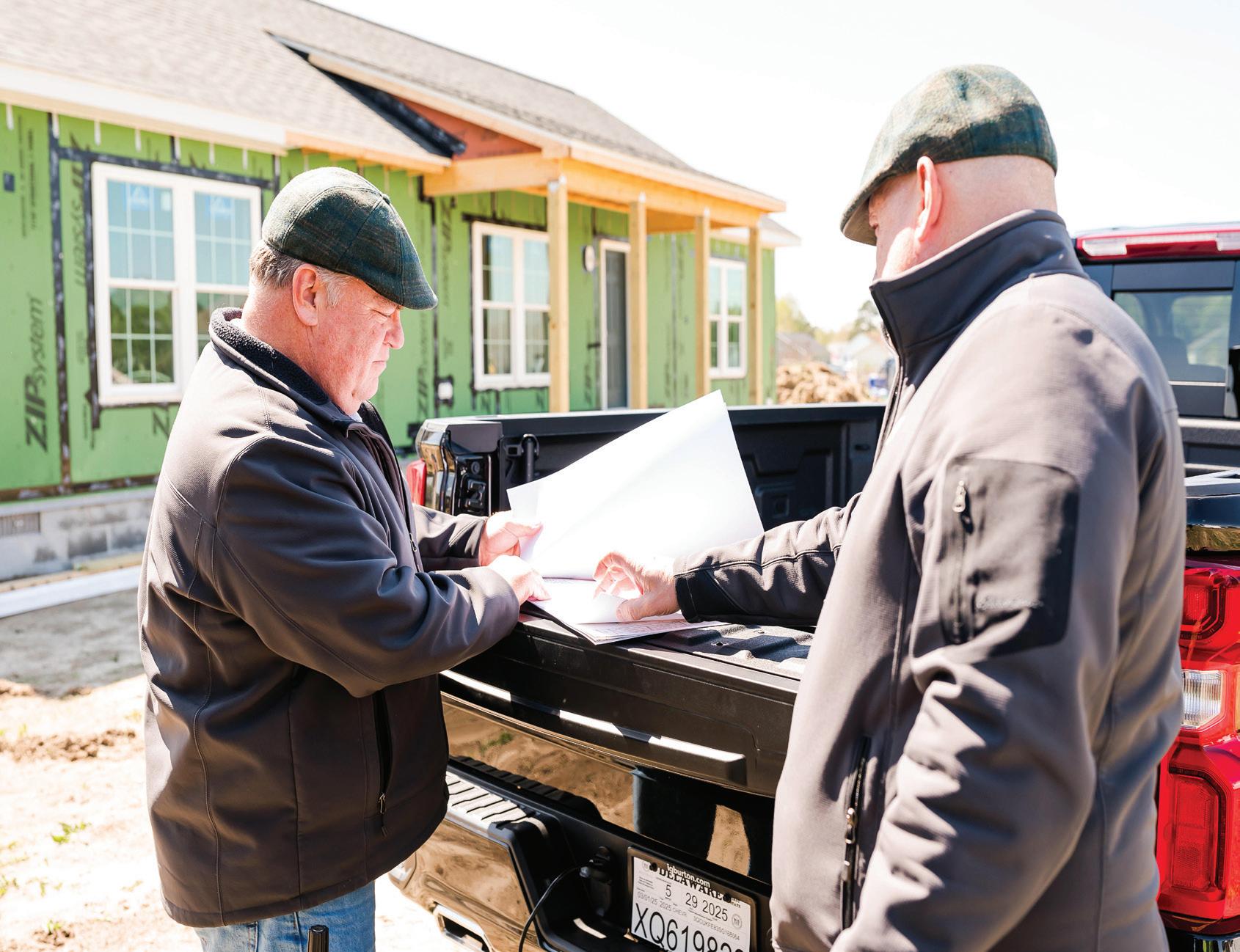
By TOM STAUSS Publisher
When Monument Sotheby’s executive vice-president Rob Smith was chosen as the Captain’s Cove association’s lot sale vendor earlier this year charged with marketing 91 association-owned lots, it was with the understanding that the program might not yield results until late in the year.
That’s turned out to be overly cautious. Four lots have been sold to builders or individuals, with two more ready to go to settlement, Smith told the Cove Currents recently.
Smith has announced the public activation of a website that shows the location of all the association owned lots that are part of the program in a detailed map of Captain’s Cove in the affected sections. Lots that have been sold are shown in red.
The website is captainscove.us. Anyone interested in a particular lot is invited to fill out an online form.

A member of Smith’s sales team will respond to inquiries.
Smith also announced the first of what he believes will be many local, regional and national builders that will partner with his team to purchase association-owned lots and then market them to prospective homeowners in lot-new home packages.
That part of the program has gotten off to a somewhat slower start than Smith had initially anticipated, but he believes it will accelerate when interest rates drop and when some of the pending litigation afflicting the Cove association begins to wane.
The builder that Smith is ready to announce is a Delaware-based firm called Holly Tree Homes. active in three states already and now moving into a fourth.
It’s a family-owned custom home builder founded in 2007 by Daniel L. Simpson, Eileen Simpson, Daniel J. Simpson, and Todd Simpson.
With deep roots in craftsmanship
To Page 61

variance to budget for the month almost reaches $91,000
By TOM STAUSS Publisher
With changes in the way financial results are recorded a possible or possible explanation, the Captain’s Cove Association produced a positive $90, 646 positive variance to budget in April, offsetting an almost identical negative variance in March.
The real change came in year-to-date results, with the association ahead of budget by a positive $134,171 through April, a sharp decline from the March cumulative year-to-date positive variance to budget of $630,000.
That represents a decline in the positive variance of a little less than $600,000. Through February, the positive variance was more than $700,000.
The association through the end of April brought in $4.29 million in revenue compared to the budgeted $4.239 million, for a positive variance of $51,786. Expenses totaled $3.691 million compared to the budgeted $3.673 million, ahead of budget by $17,614.
The results suggest accurate budgeting by the Property Management Team.
Through April, the association’s net income was $599,201, ahead of budget by $34,171. The yearly net income target is $700.000.
April was a good monthly financially for the association, offsetting an operating loss in March. Total income was $851,450, with $499,137 in expenses, resulting in net income of $152,313 and ahead of budget by $90,846.
Bad debt expense in April did much better than budget, with the posted results showing a negative $26,120.
It’s an expense line item and translates into a net positive for the association, Bad debt was supposed to cost $51,925 for the month. The positive variance was $78,045.
On the income side for April, dues and assessments brought in $495,491, ahead of budget by $7,009. For the year through April, this income stream has brought in $3.476 million, ahead of budget by $58,523.
The golf pro shop was ahead of budget by $3,609 in April, while food and beverage missed budget by $14,077.
For the year through, golf is ahead of budget by
From Page 60
and customer service, Holly Tree Homes specializes in traditional stick-built, modular, and postframe construction methods.
“The company is proud to serve homeowners across Delaware, Maryland, Virginia, and West Virginia. Committed to excellence and value,” Daniel L said. “Holly Tree Homes is dedicated to
$9.873 while food and beverage is under budget by $55,321.
Some of that might be offset by better than budgeted performance during the summer months and a new outside banquet policy at the Marina Club, which will allow one banquet per month on a weekend provided it can generate at least twice the revenue of a normal night in the restaurant for that time of year.
Source: Director of Finance Sarah Shifflett
delivering the highest quality homes tailored to each client’s vision and needs. Holly Tree Homes is excited to bring its small family-owned business to Captain’s Cove!”
Its Captain’s Cove website is hollytreehomesllc.com.
Smith said he will be ready to announce a second builder his team is working with as soon as a spec home is completed.
From Page 58
rent under this policy, with the provision that the course can’t be closed to the membership except during the annual Greenbackville Fire Department golf tournament. Organizations that want to reserve days and tee times may book and pay for them ahead of time, with tee times and cart rentals available at the published public rate.
By CCGYC President Mark Majerus
Captain’s Cove Golf and Yacht Club Inc. is the corporation that is the property owner’s association. It is NOT a homeowner’s association. Every lot owner, be it with a home or not, is a member of the association, and each lot has equal representation. The Board of Directors is the primary governing body of the association.
The governing documents authorize and invest in the Board of Directors solely with this power, apart from the Environmental Control Committee.
The hierarchy of these documents are from the highest being recorded plats, followed by the declaration of restrictive covenants, followed by the Articles of Incorporation and then the lowest, by-laws.
The Board of Directors consists on seven directors and one alternate. Currently there are three Class-B directors (representing the Declarant, CCG Note LLC) and the remaining five directors are Class-A members. Of these five, three own homes and live in the Cove and the other two own unimproved lots.
The requirement to be a director is simple: to be a member in good standing – that is own a lot and not owe the Association any money.
These Directors meet regularly to conduct the business of the corporation: fix and ensure the collection of assessments, ensure records are maintained, approving budgets, addressing rule issues (creation and enforcement), managing employee issues, address formal complaints from Members, overseeing the financial health of the business and assuring that adequate reserves are in place for maintenance, repairs and replacements, etc.
In turn, the Board empowers the Property Management Team to set procedures and manage the daily operations of the business. The Declarant does not control the Association nor the Board. They have three votes of seven for any motion.
Tim Hearn does not control the Association or the Board. Mr. Hearn as an alternate Director may only vote if a Director is absent and has submitted no written proxy.
I am continually amazed at the lack of understanding of the duty of a director on the Board of Directors.
I hear comments or see screenshots of “they aren’t doing what we,
the dues-paying members want” or “they are our representatives, and as public officials have to do what we ask of them.”
First, the directors are not public officials. They are unique officers of a corporation: it is not a local government.
There is an entire chapter in Virginia law dedicated to Non-Stock Corporations of which Captain’s Cove Golf and Yacht Club Inc. follows. And we are all unpaid volunteers.
sidered in all Board decisions.
They include the approximately 1,300 improved (homes) Class-A lots, approximately 1,200 Class-B lots, approximately 900 Association-owned Class A lots, and approximately 1,500 unimproved Class A lots.
So, the residents or homeowners do not represent the majority of CCGYC membership. The fact that cumulatively they have the greatest financial investment is also immaterial and should not enter any
“What is not widely recognized is that what is good for one group of members, often benefits most of the members. We all want a beautiful, thriving community which requires managing and maintaining common areas and enforcement of the community rules. The homeowners have a great place to live.”
Unlike most elections that people participate in, those elected for a Board seat do not represent those that elect them. Under Commonwealth law 13.1-870A, “A director shall discharge his duties as a director, including his duties as a member of a committee, in accordance with his good faith business judgment of the best interests of the corporation.” It makes no reference to “only dues-paying members” or “only residents”.
Anyone who advocates that as a director that only those groups would be their sole focus is openly and publicly breaching their legal duty and could be subject to legal prosecution.
“Non-residents” by virtue of lot ownership are equal members of the corporation. Lots owned by the Declarant are also equal members of the corporation.
There is no distinction between Class A and Class B members, aside from voting rights as determined over 50 years ago.
It should also be pointed out that virtually all associations extend a different voting schedule to the declarant or developer ranging from 3:1 to 10:1, and it is extremely rare for a declarant or developer to pay dues. CCGYC is not unique.
In fact, there are four general groups of owners that must be con-
continues that threshold will remain virtually impossible to achieve. What is not widely recognized is that what is good for one group of members, often benefits most of the members.
We all want a beautiful, thriving community which requires managing and maintaining common areas and enforcement of the community rules. The homeowners have a great place to live.
The unimproved lot owners have an investment in real estate, subject to market conditions beyond the control of the Board, that will hopefully escalate. This is attractive for the Declarant to be able to sell lots and make other investments as market demand warrants.
decision process. The value of a lot simply is not part of the represented ownership equation under our governing documents, nor under Commonwealth law.
As a corporation we have duties to our employees as well. We have responsibilities to long-term planning of the community, risk analysis, periodic maintenance, asset improvements or replacements, etc. All of these must be evaluated, managed and executed.
There is only one party that can legally make these decisions: the Board of Directors (13.1-853 and our governing documents). And by what standard? Good faith business judgment. It is quite simple.
I understand that some members didn’t review or understand the governing documents of CCGYC prior to their purchase. Just like state laws, there are mechanisms to change these documents.
For example, the Declarations of Restrictive Covenants can be changed with 2,000 votes. It may seem that this threshold is difficult to achieve, in spite of there being over 2,800 Class A members. But it should be recognized that working collaboratively with both the Class A and Class B members, that required number of votes is attainable.
If the pattern of simple opposition or division between these groups
And yes, the directors of the Board often vote similarly for most motions. Why? It is not that all directors are puppets of the Declarant. It is the recognition of the issues, balanced across all parties, and what must be legally done often dictates that the proposed solution is the common sense or legal answer.
I know last year’s dues increase was unpopular. Coming through a highly inflationary period it would have been nearly impossible to maintain the same dues. I can’t run my household at the same cost. Insurance rates are up, utility rates are up, food prices are up, maintenance materials are up, etc.
The PMT did an admirable job of trimming nearly $300,000 of costs increases out of the FY2025 budget during the budget development process. As a result, the PMT budget was able to maintain the prior dues level.
However, the Association also had an updated Capital Reserve Study (legally this must be done every five years), which raised the annual funding requirement from $204,000 to over $545,000. And no, it wasn’t the effect of some project a couple years down the road.
The replaceable assets owned by the Association (and in part, by every member) has increased from $3.8 million to $10.2 million, so of course the eventual replacement costs go up as well.
The corporation is required by law (55.1-1826) to set aside sufficient money to replace all assets. Go read the reserve report on the webu
site as it is quite detailed.
The only party responsible for reviewing and setting aside the capital reserves is the Board; the PMT is not authorized to do this nor to add associated increases to the budget.
The board meeting last August went through this financial process and discussion in great detail. And in the end of the discussion, all
five Class A directors, all of whom had homes here, Dave Felt, George Guthridge, Frank Haberek, Pat Pelino and Mark Majerus, voted to pass the increased dues.
These decisions are not taken lightly. But it was in the best interest of the corporation, which is the requirement.
As directors, we pay the same
dues but get the added benefit of the scorn of neighbors for doing the right thing.
We are now entering the period for members to submit their candidacy forms for the open seats in next year’s election. I encourage all to spend some time reading and re-reading the governing documents, reviewing past Board meeting tran-
scripts and financial records. I had a home here for a dozen years before becoming active on the Board. It’s been quite an education since. I can also honestly say it’s been frustrating as well. But I believe it has been a positive benefit to my neighborhood: unique and charming and full of character and characters.











































